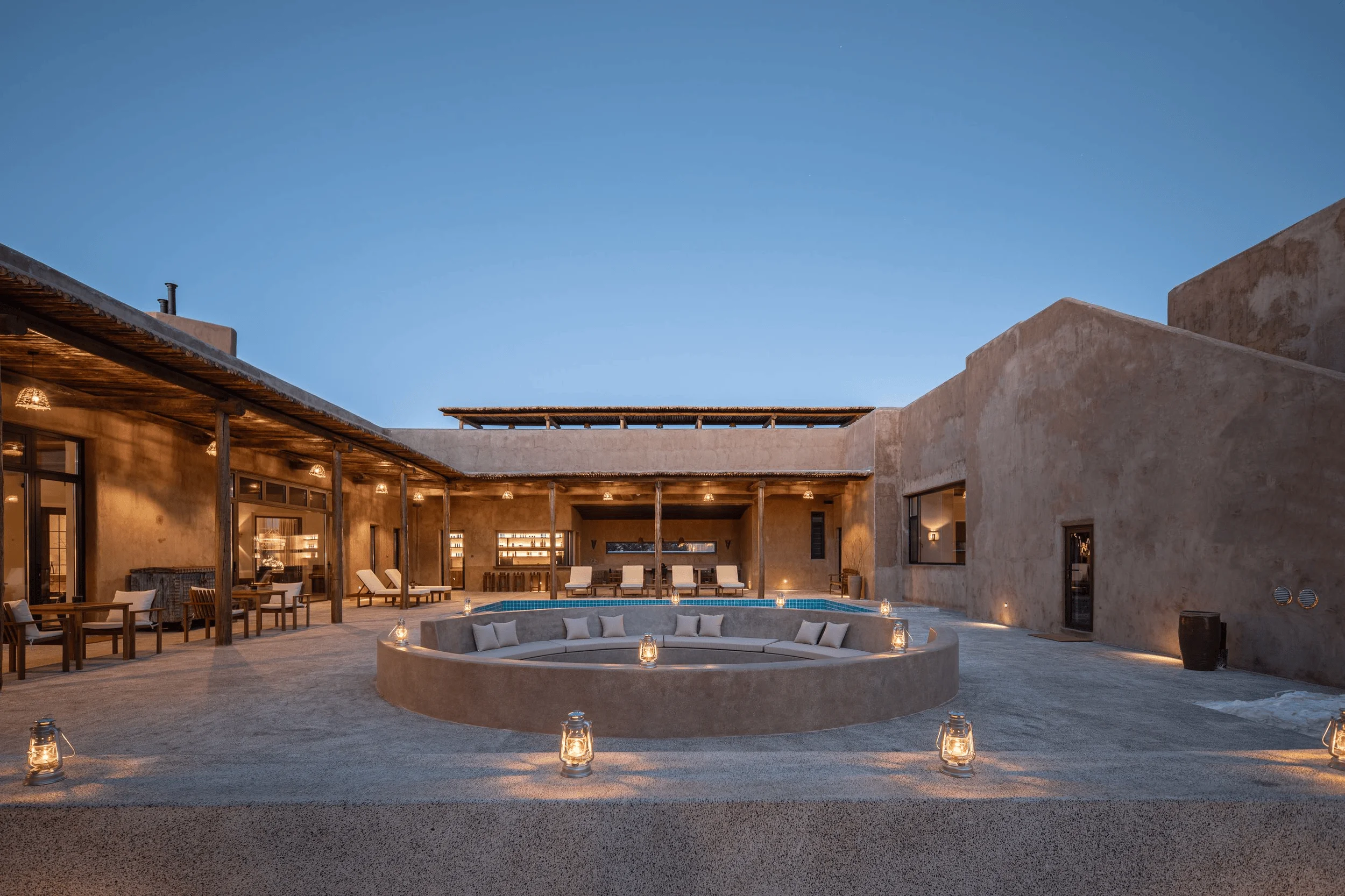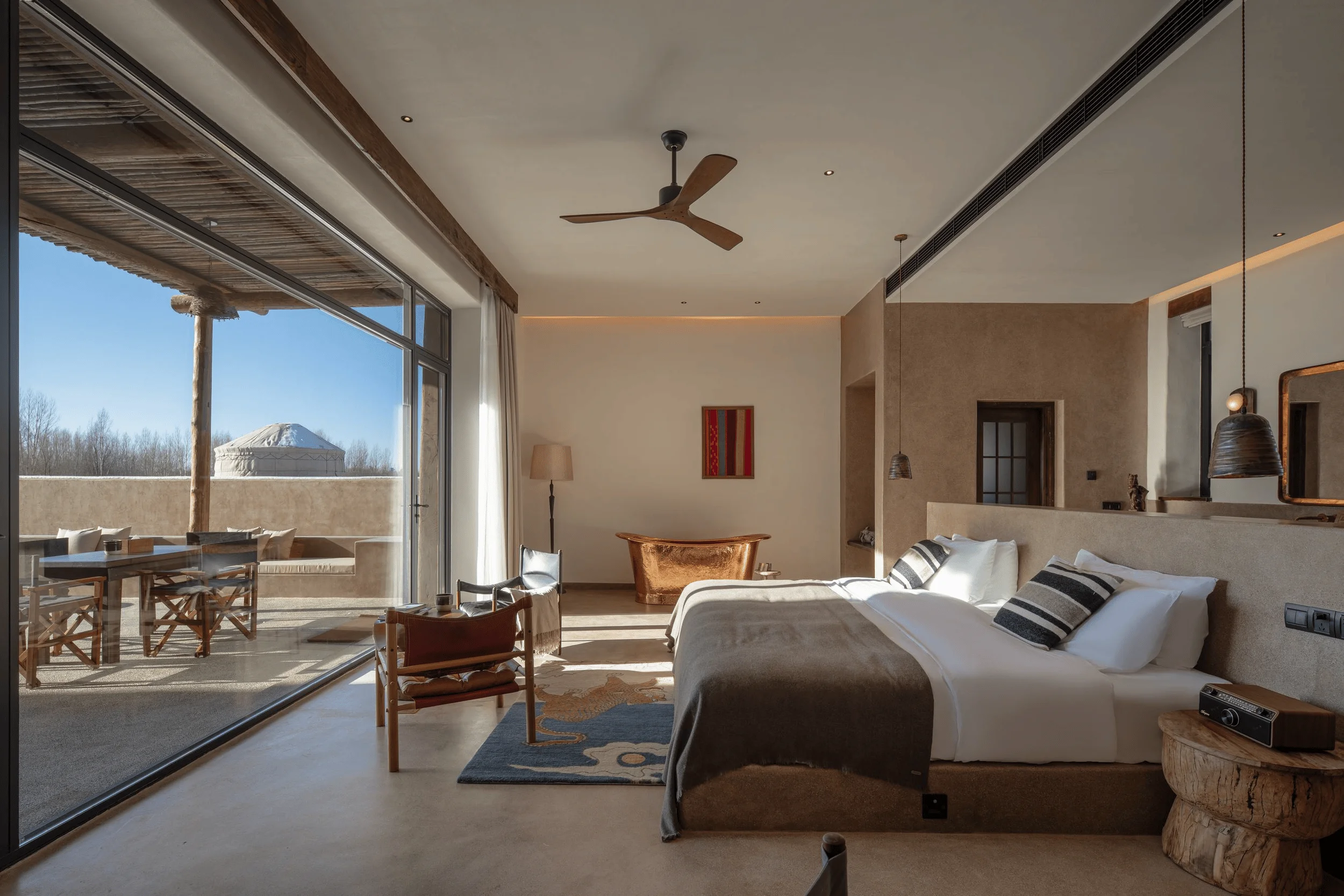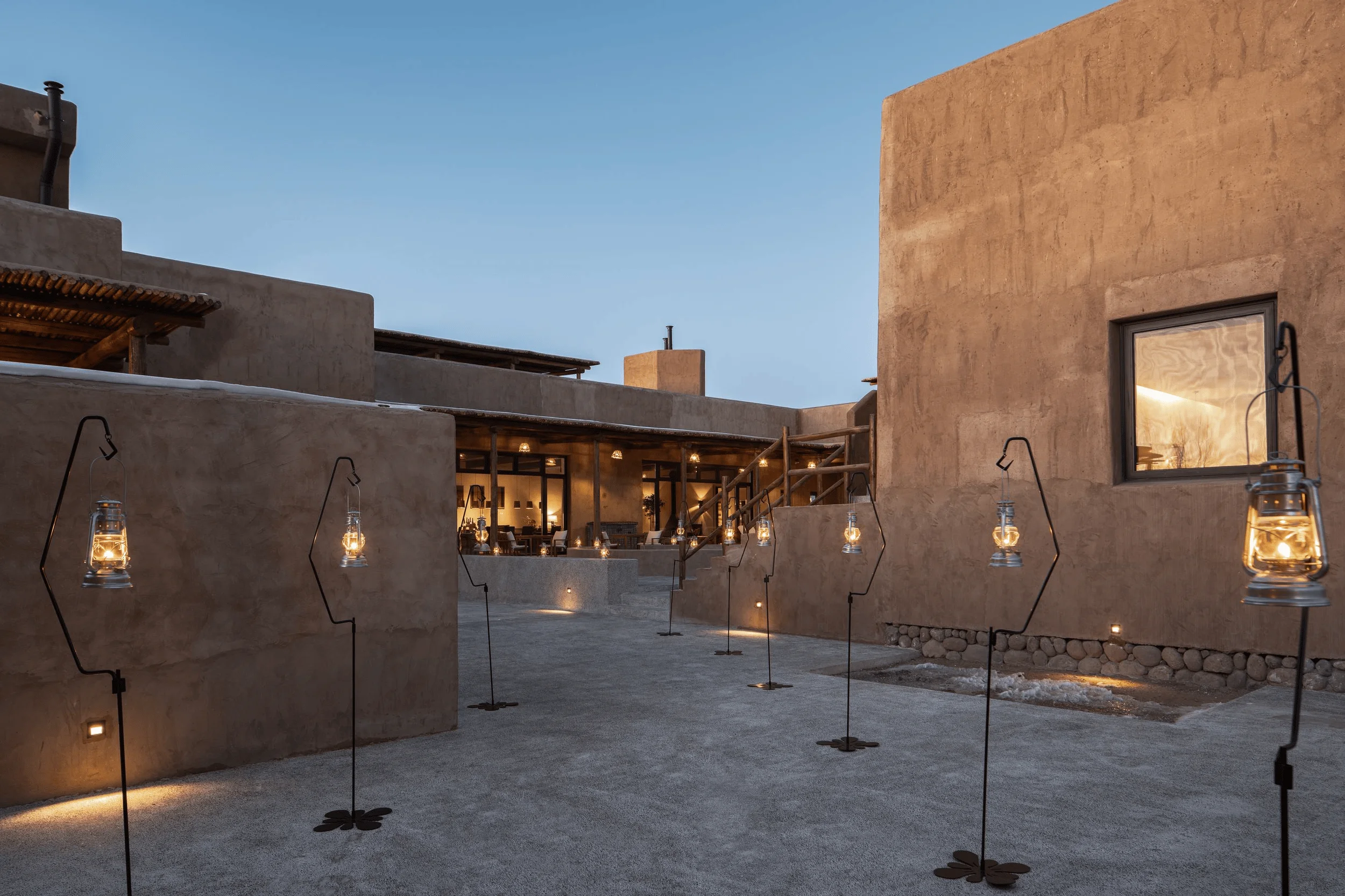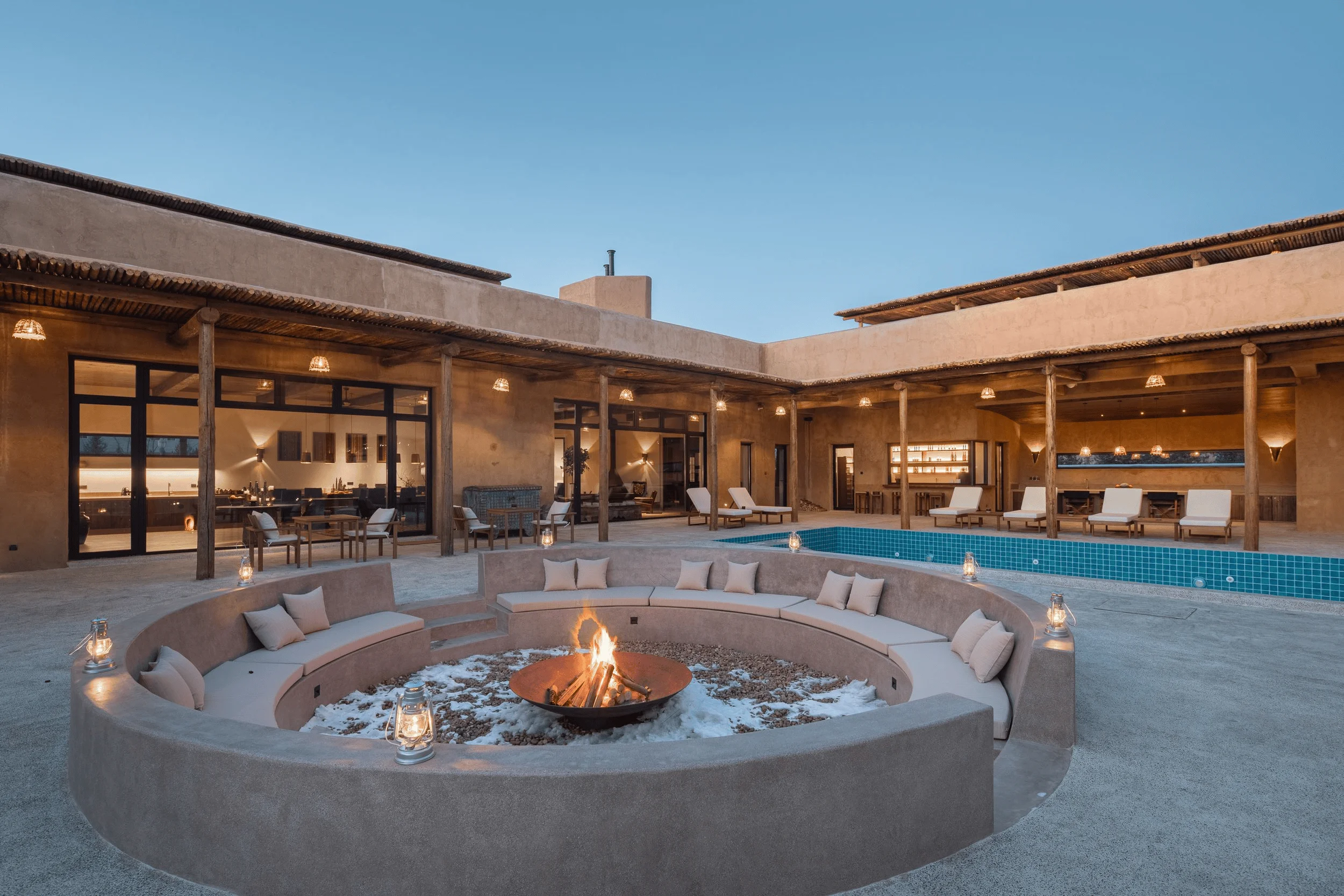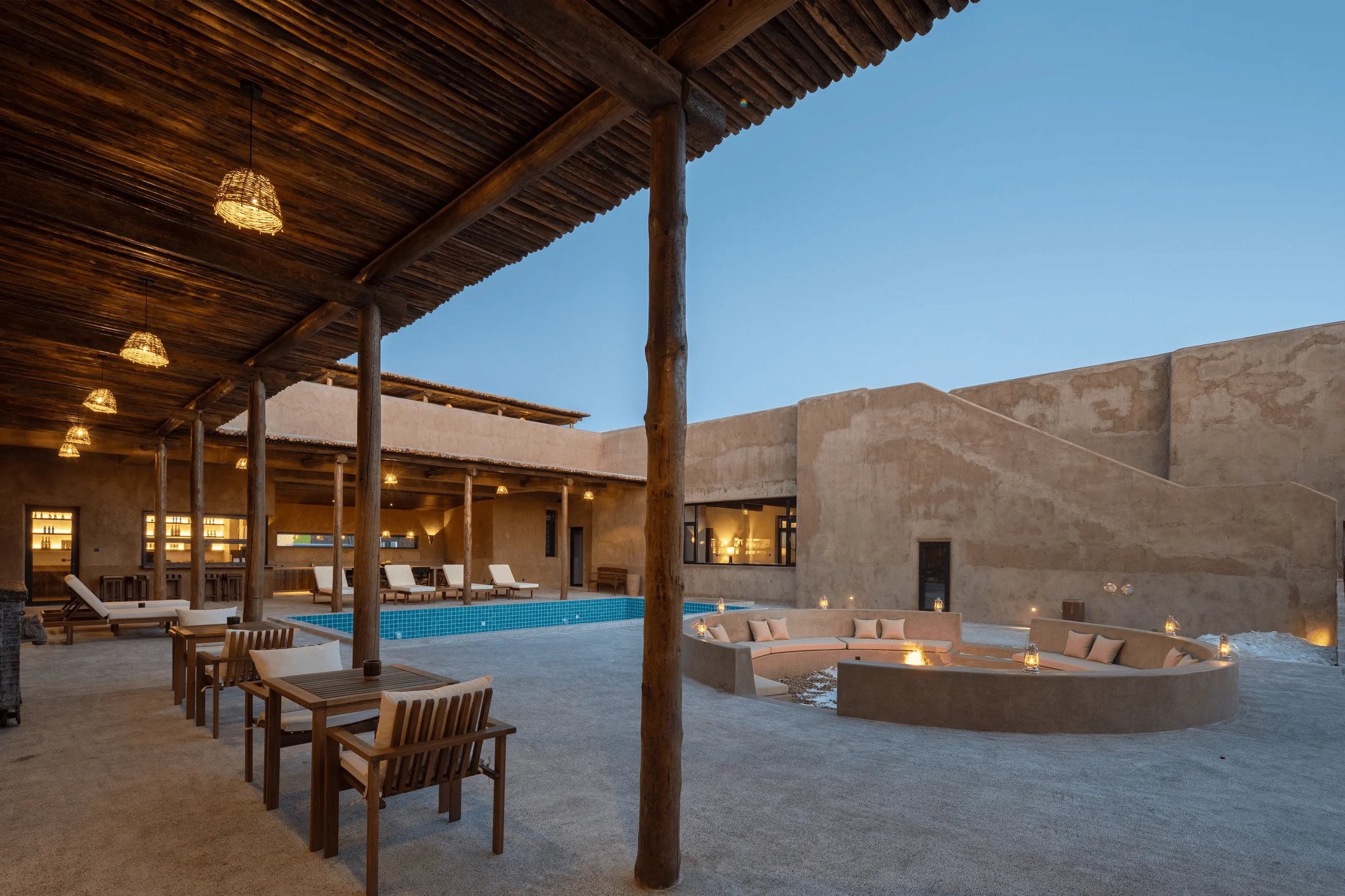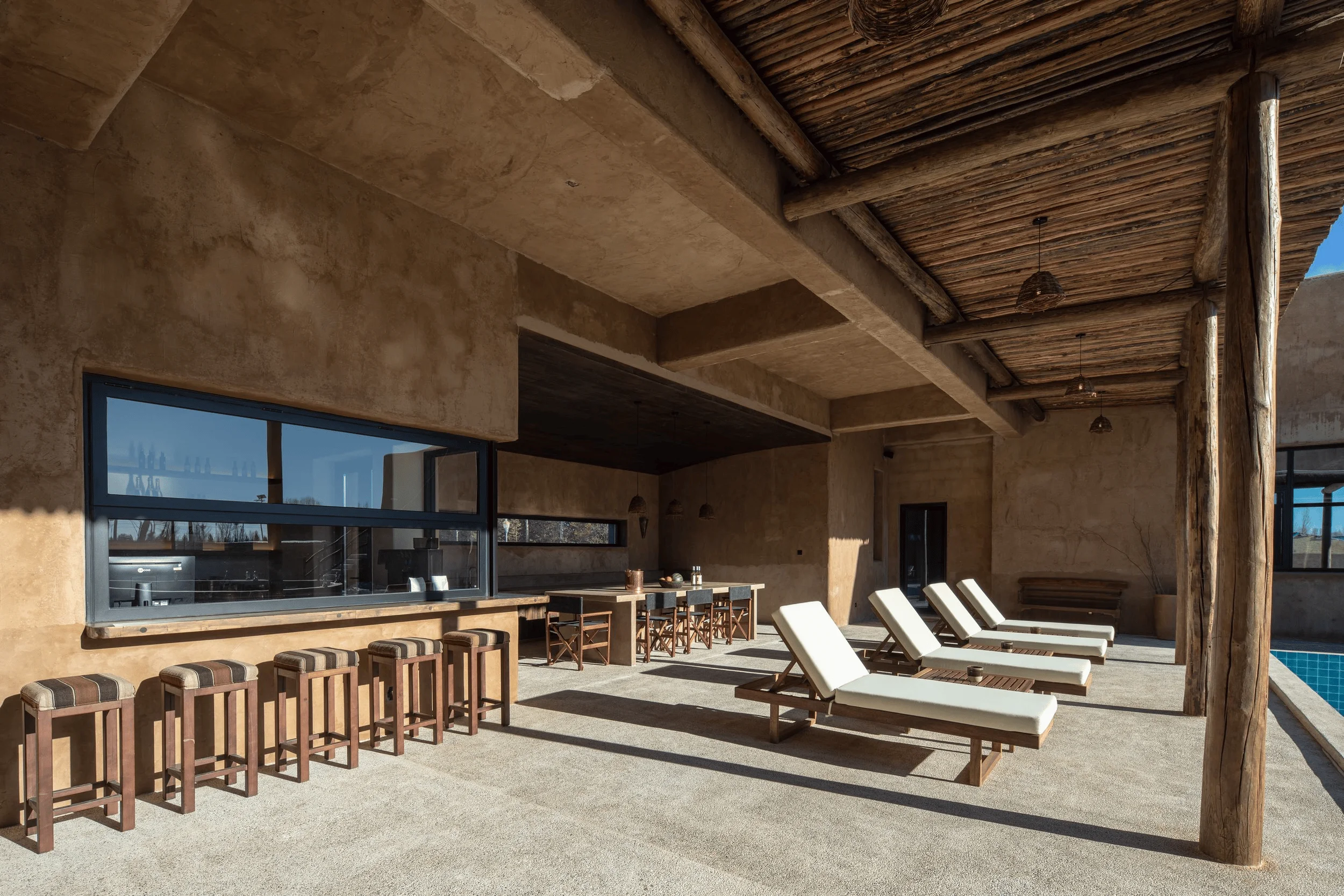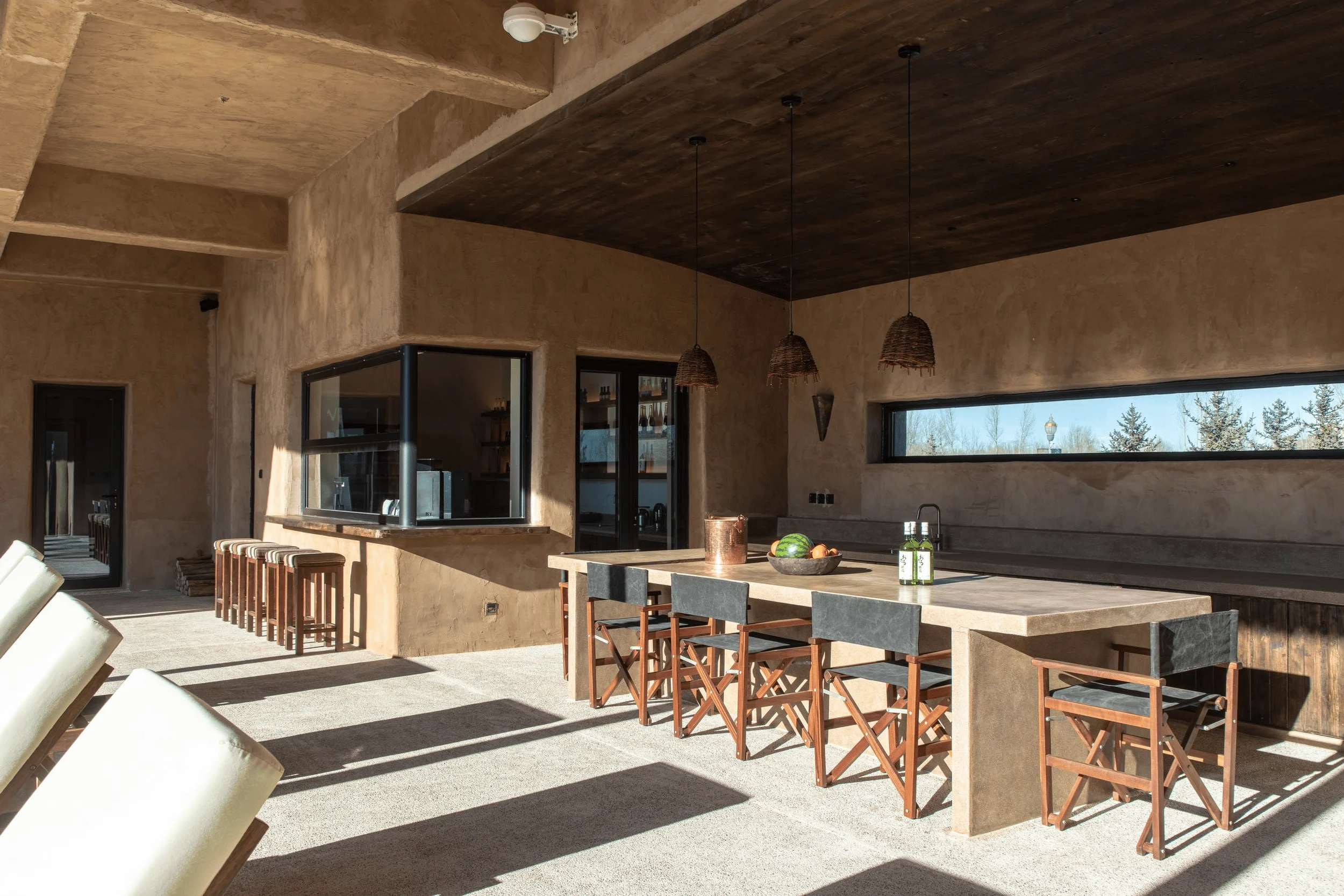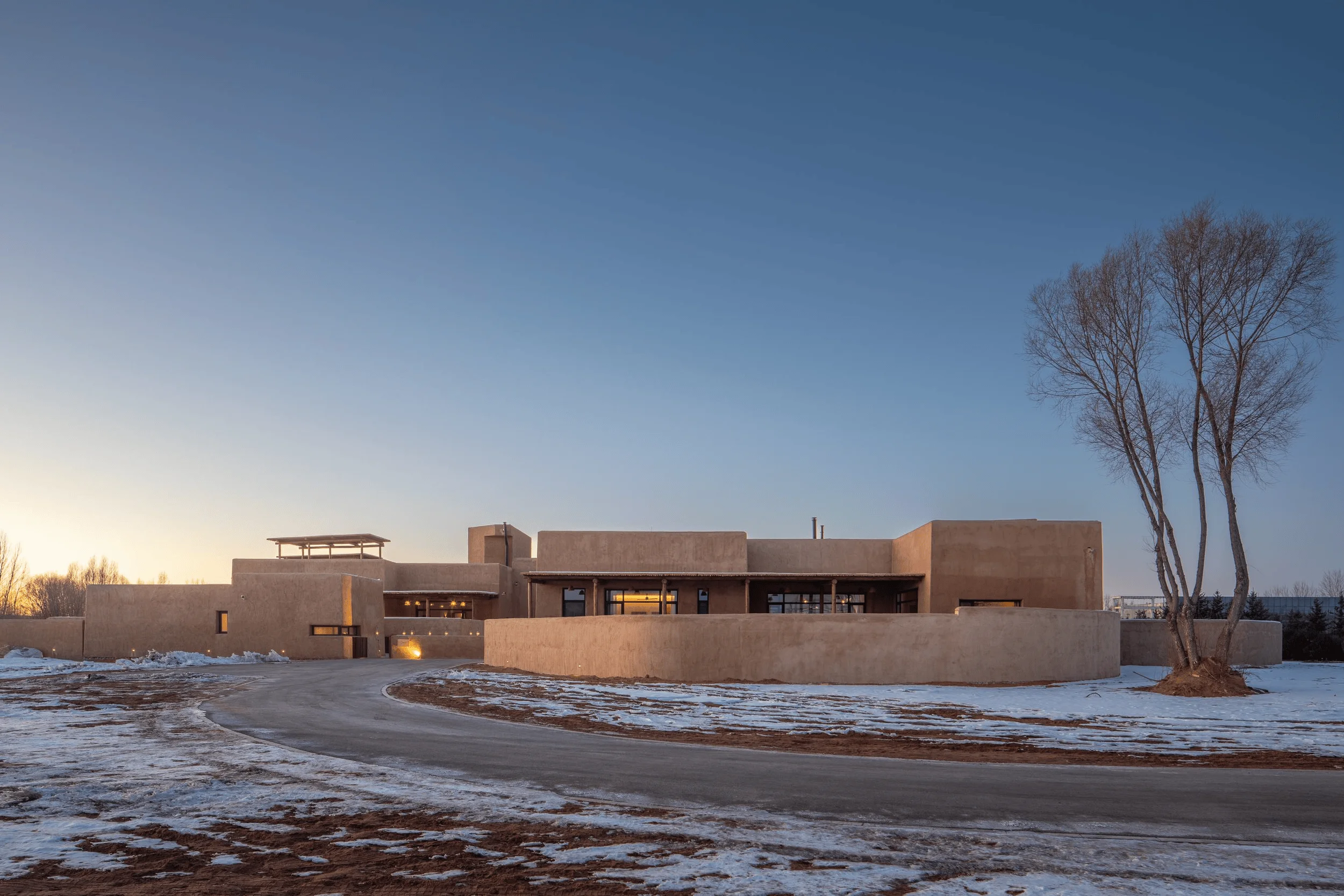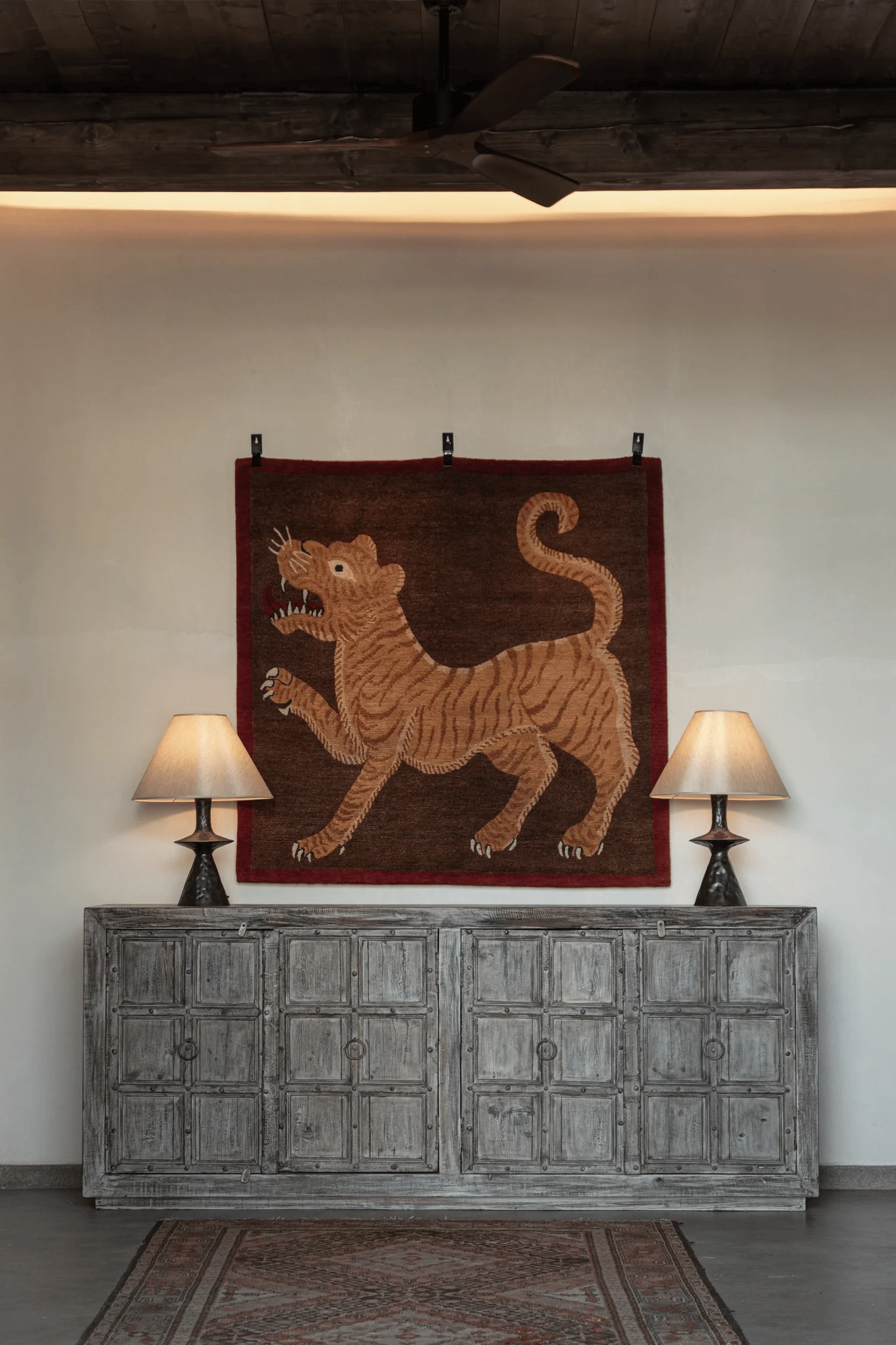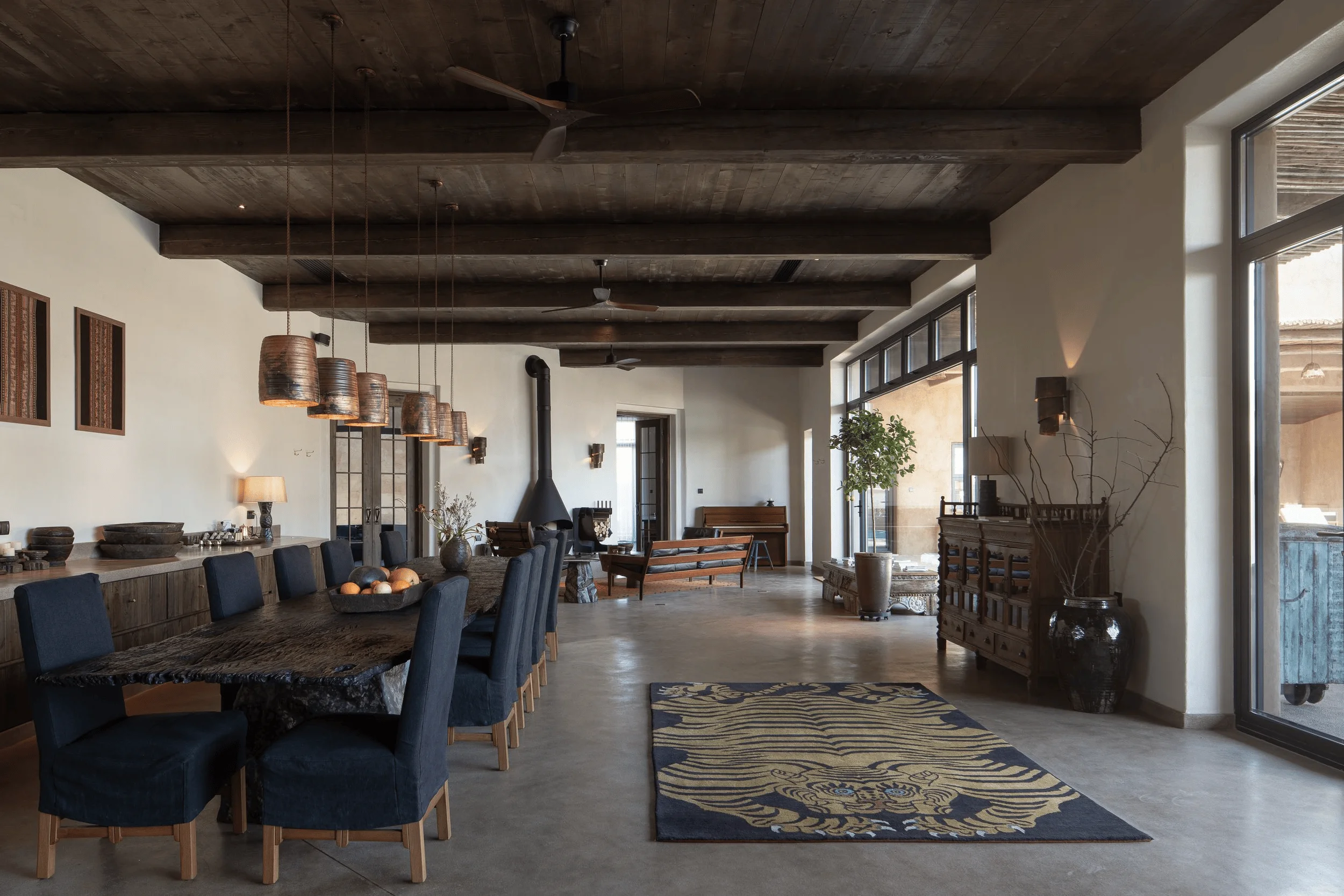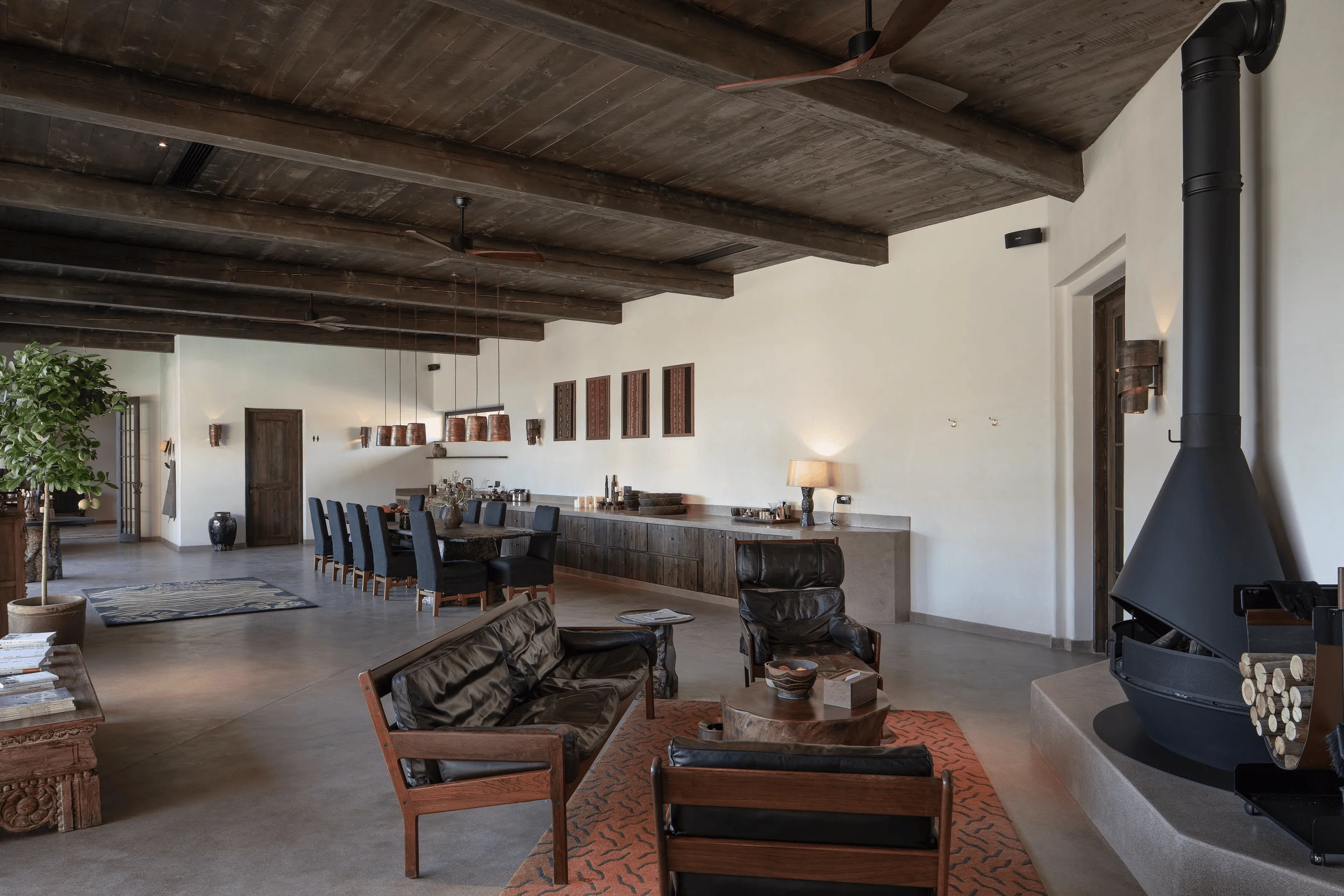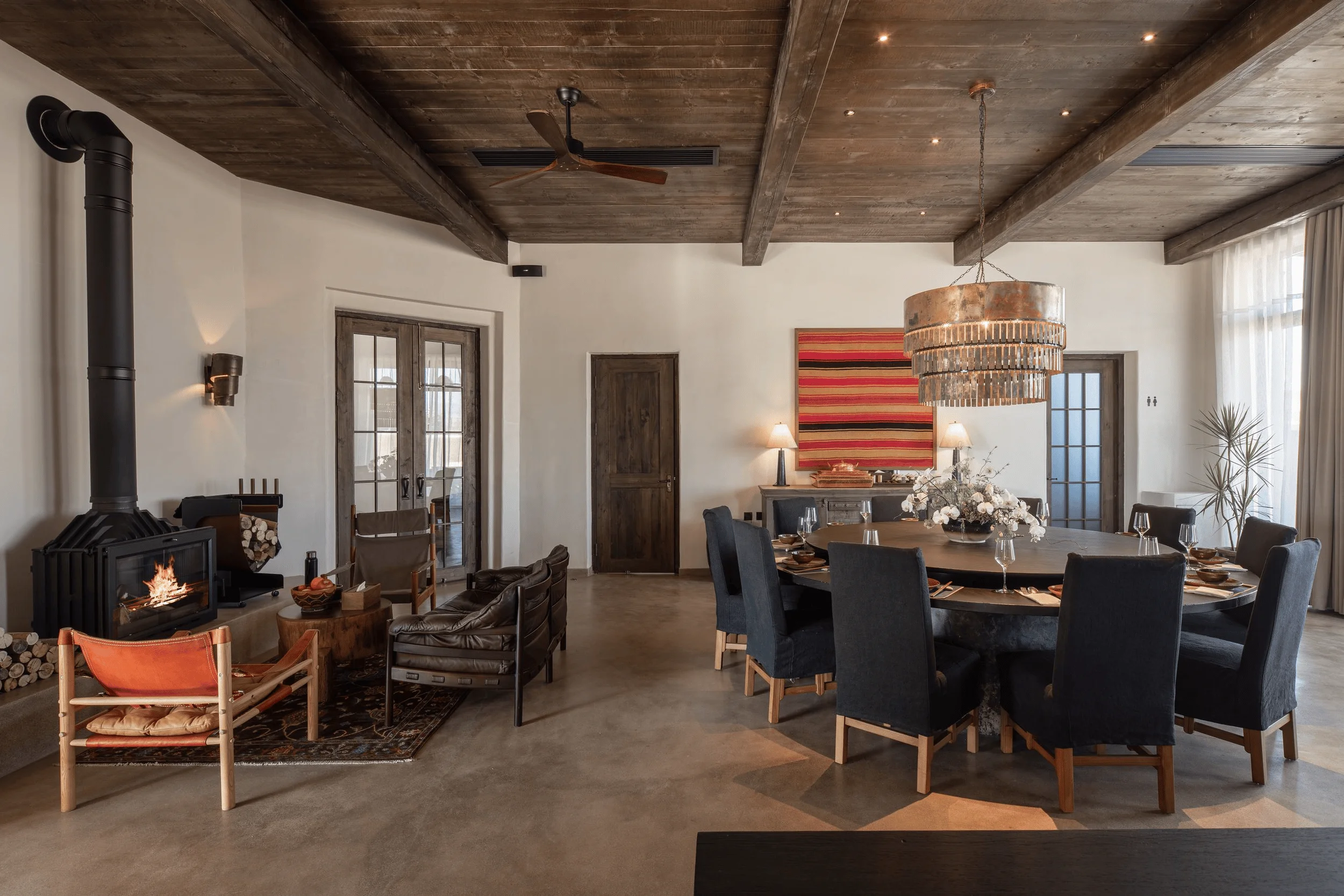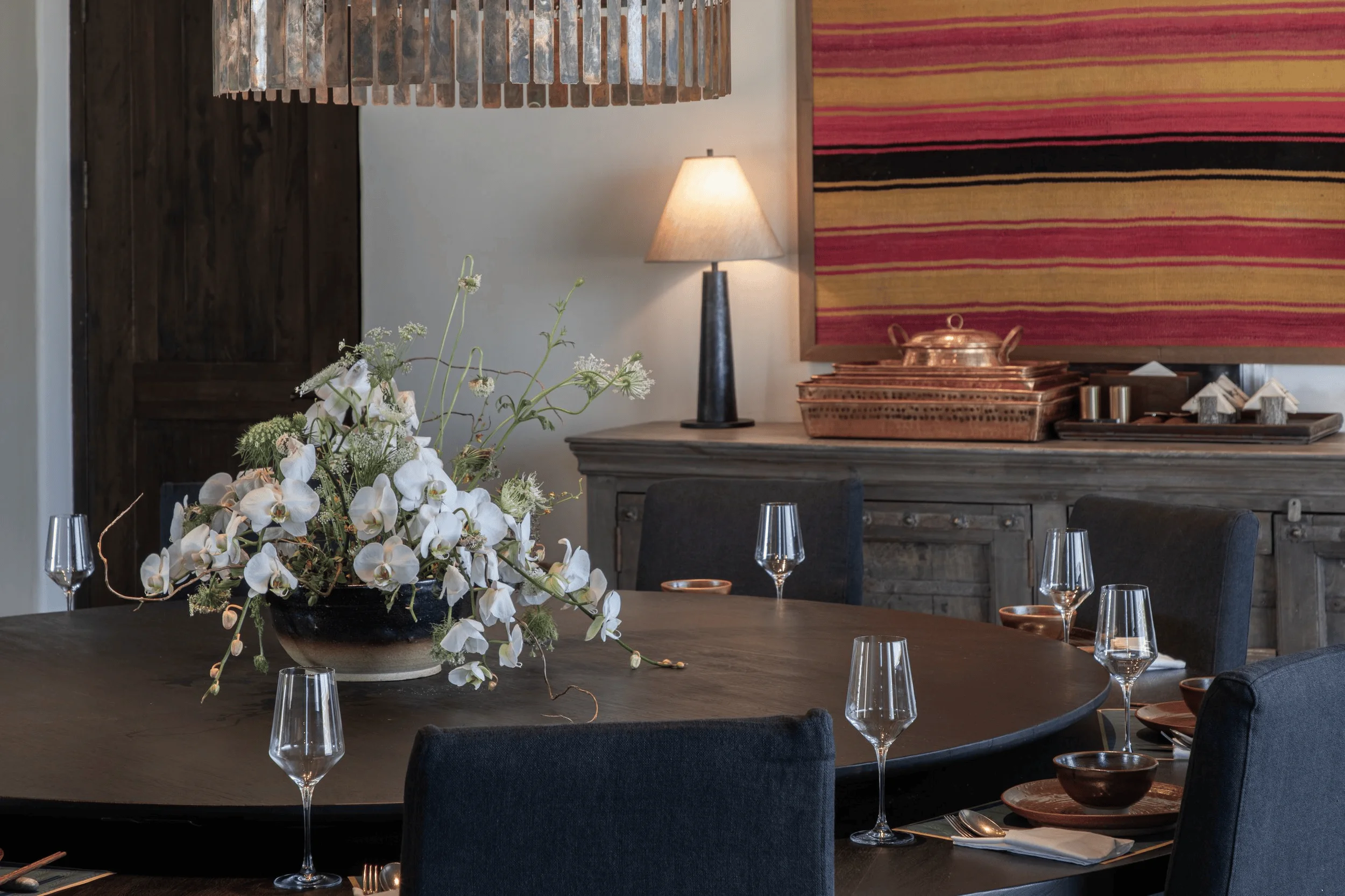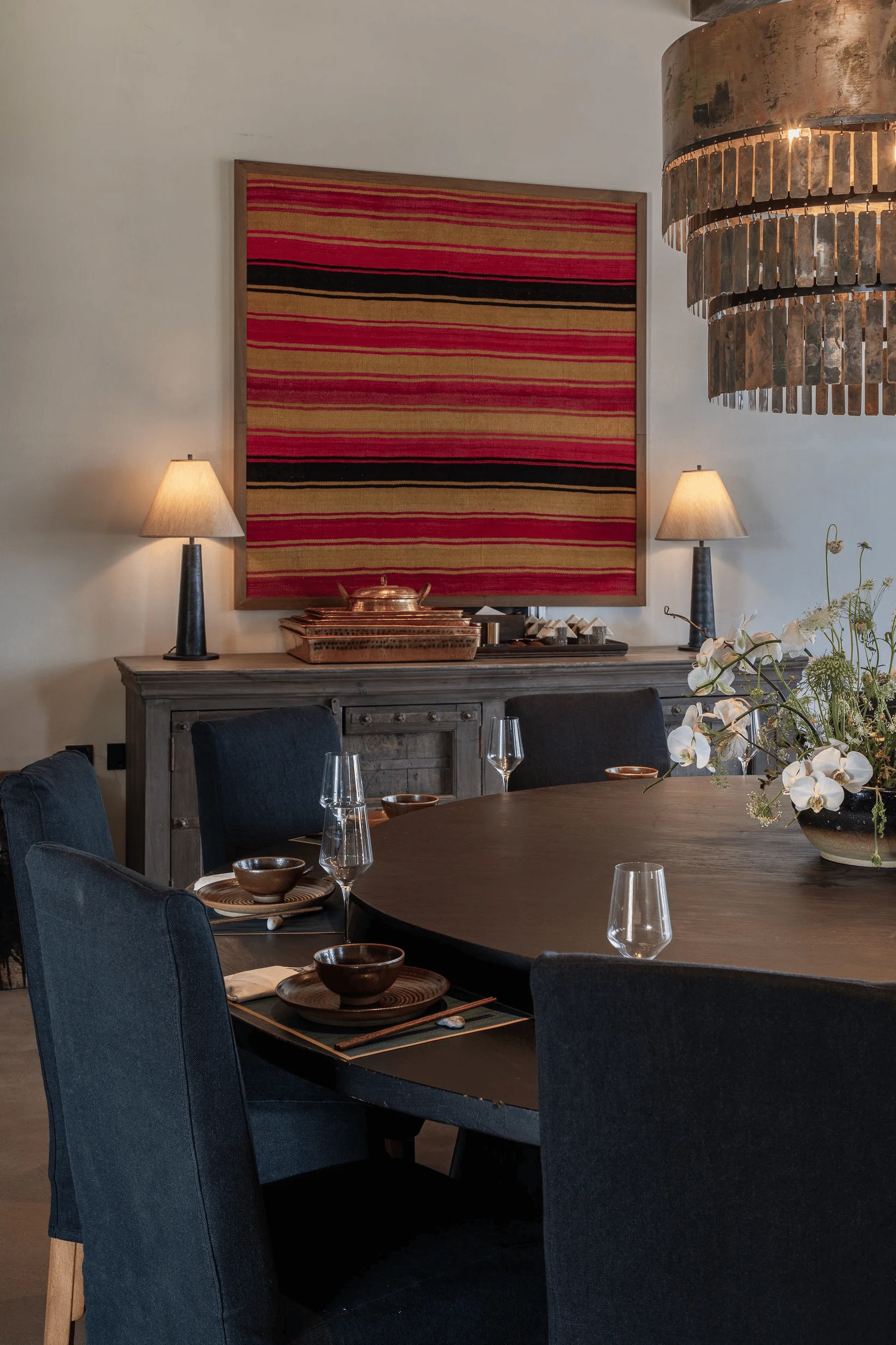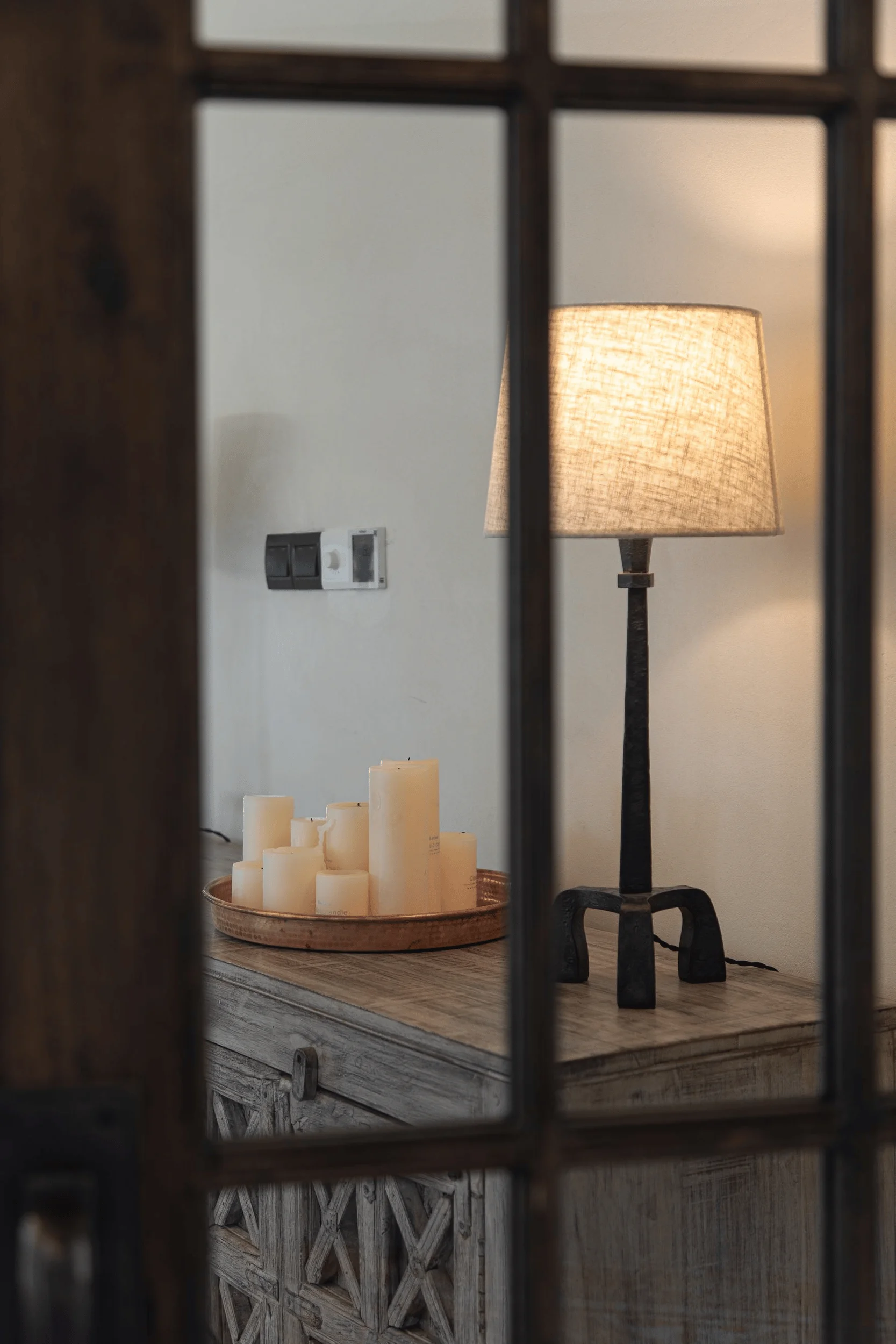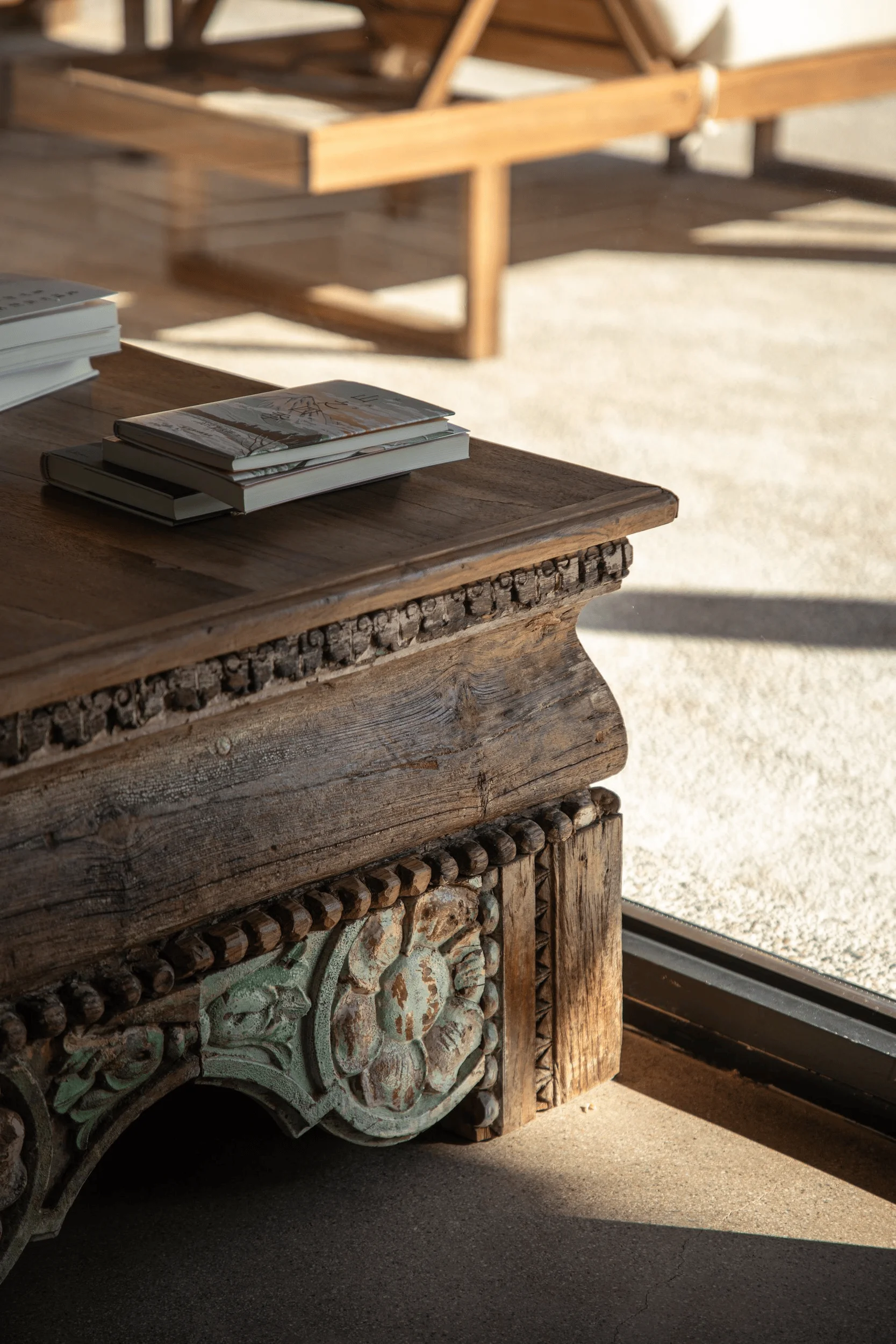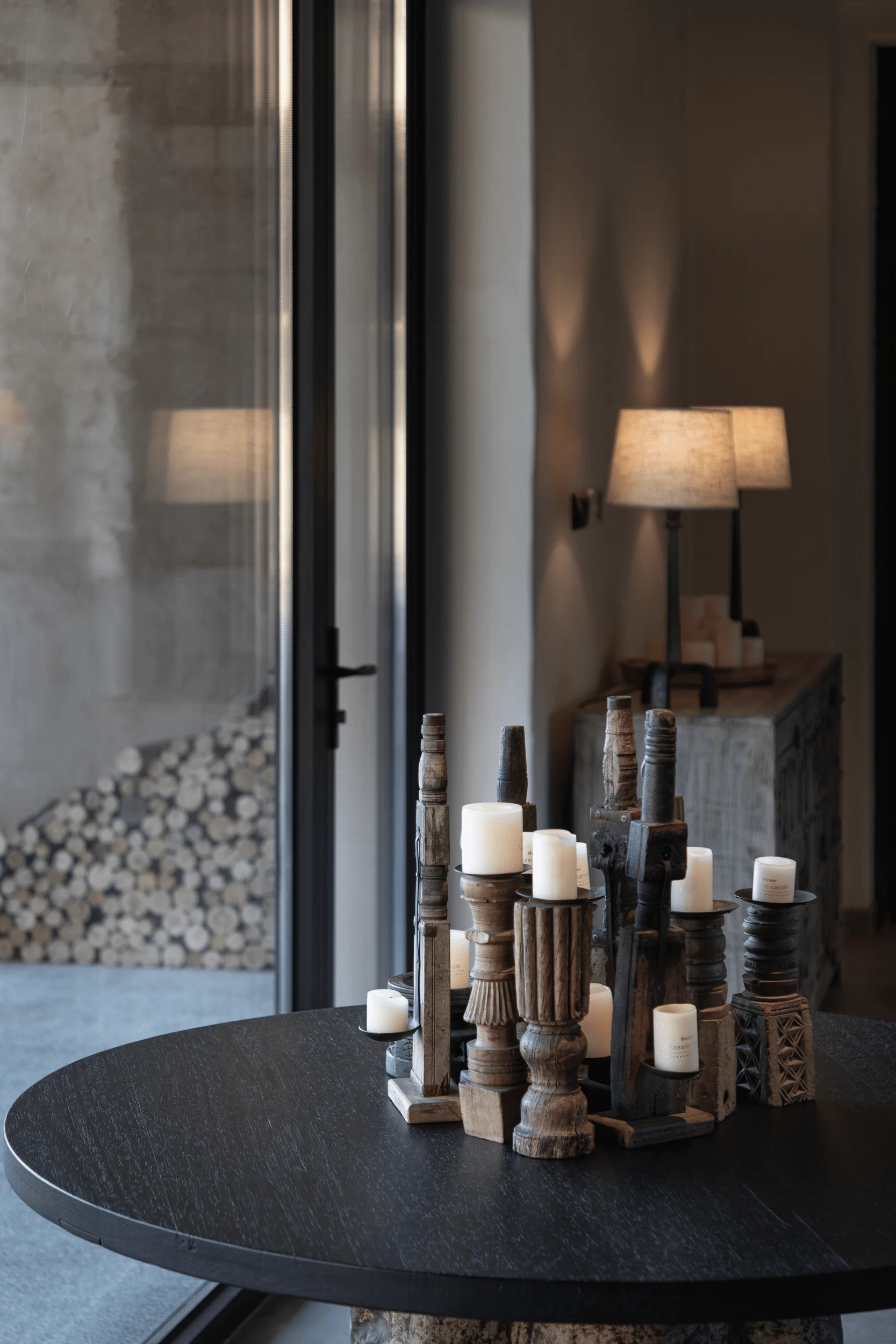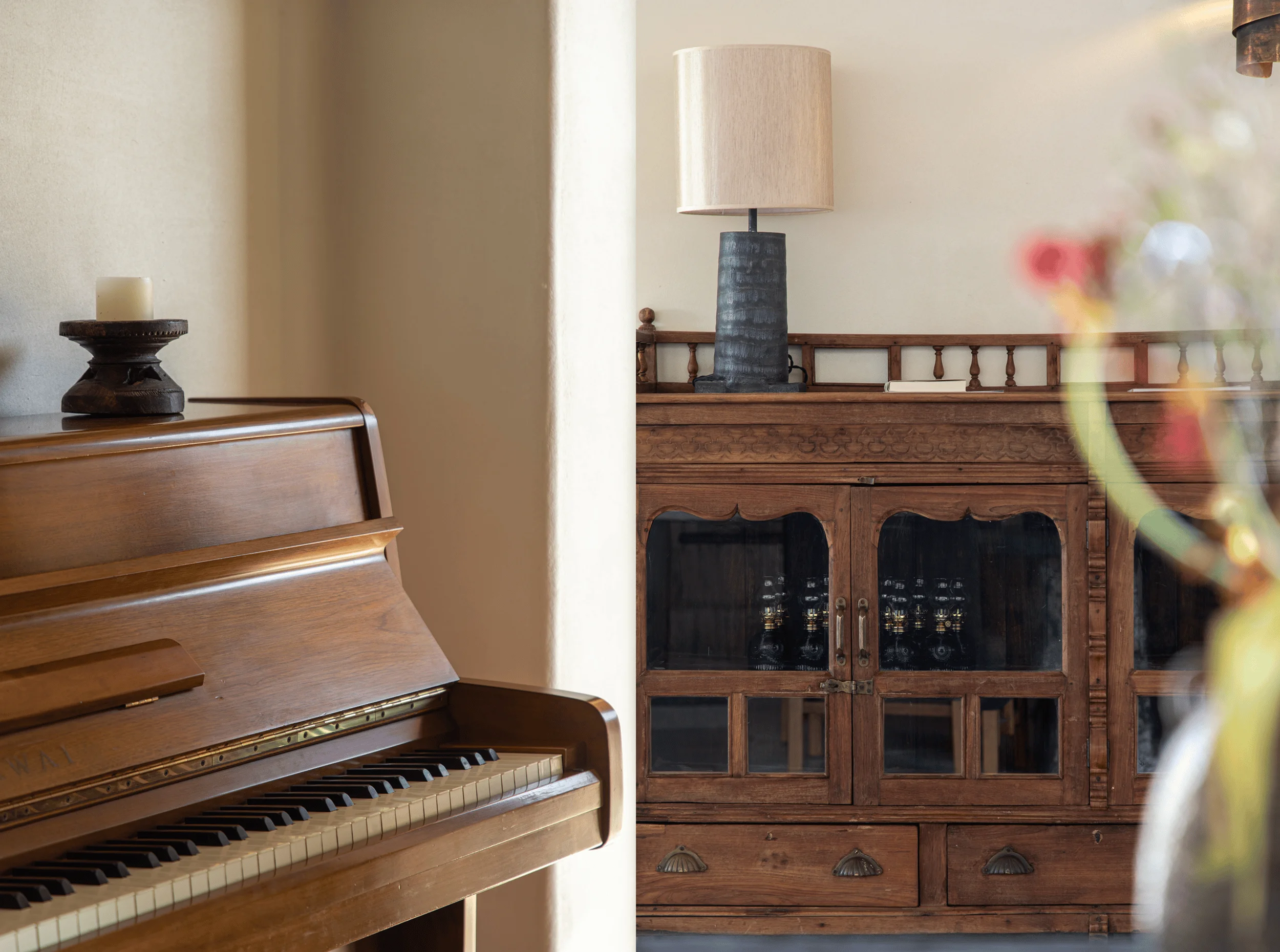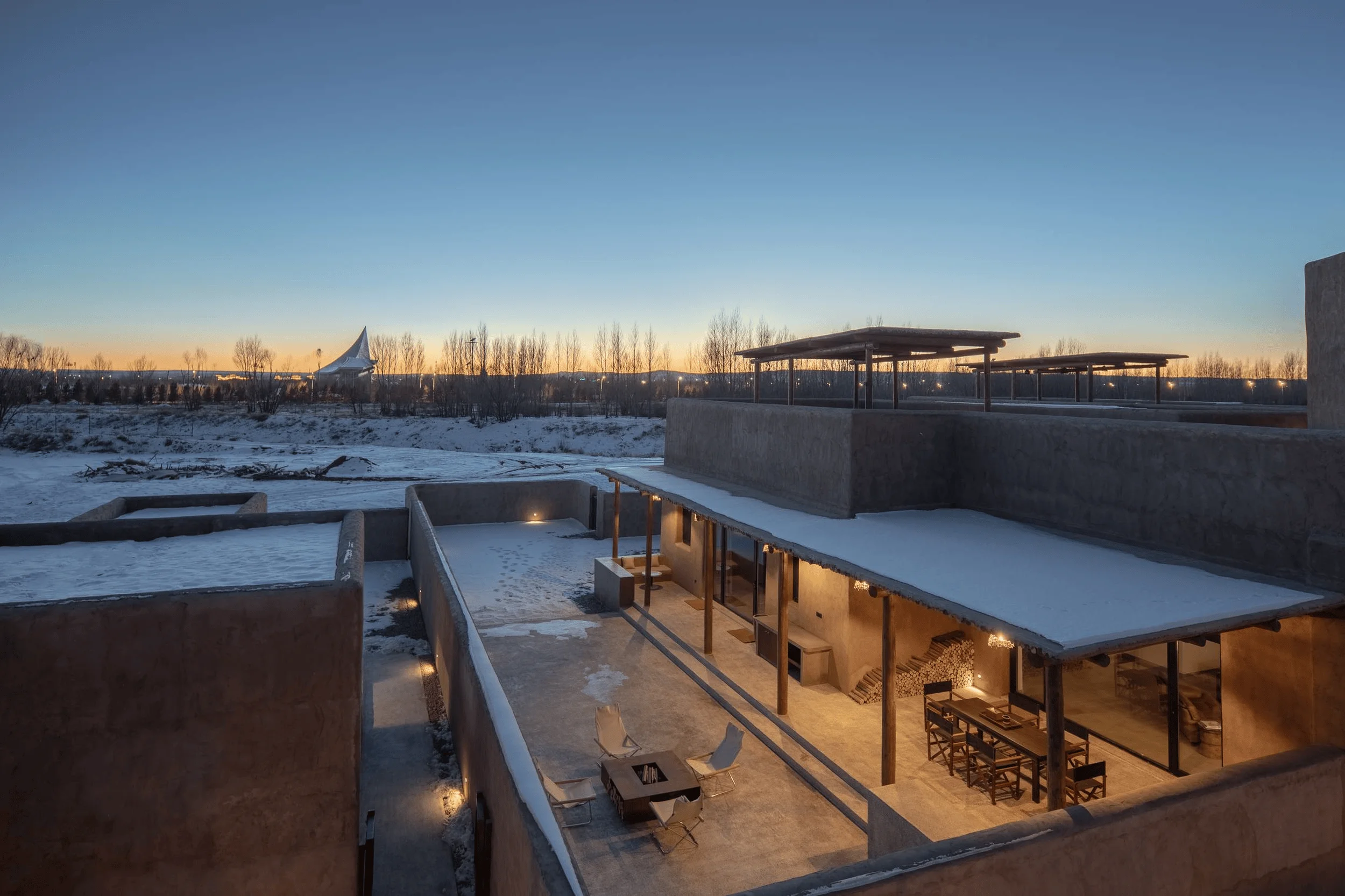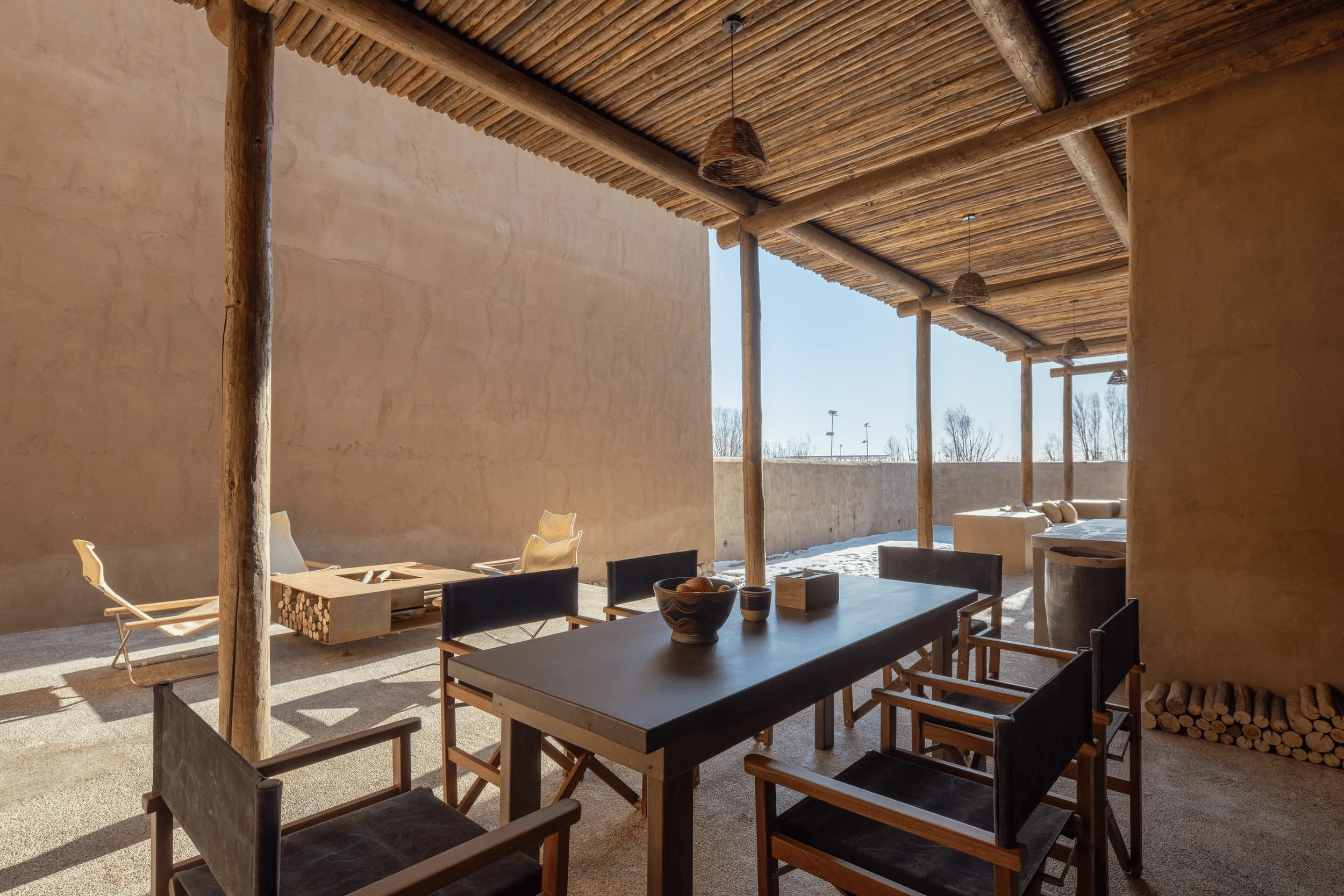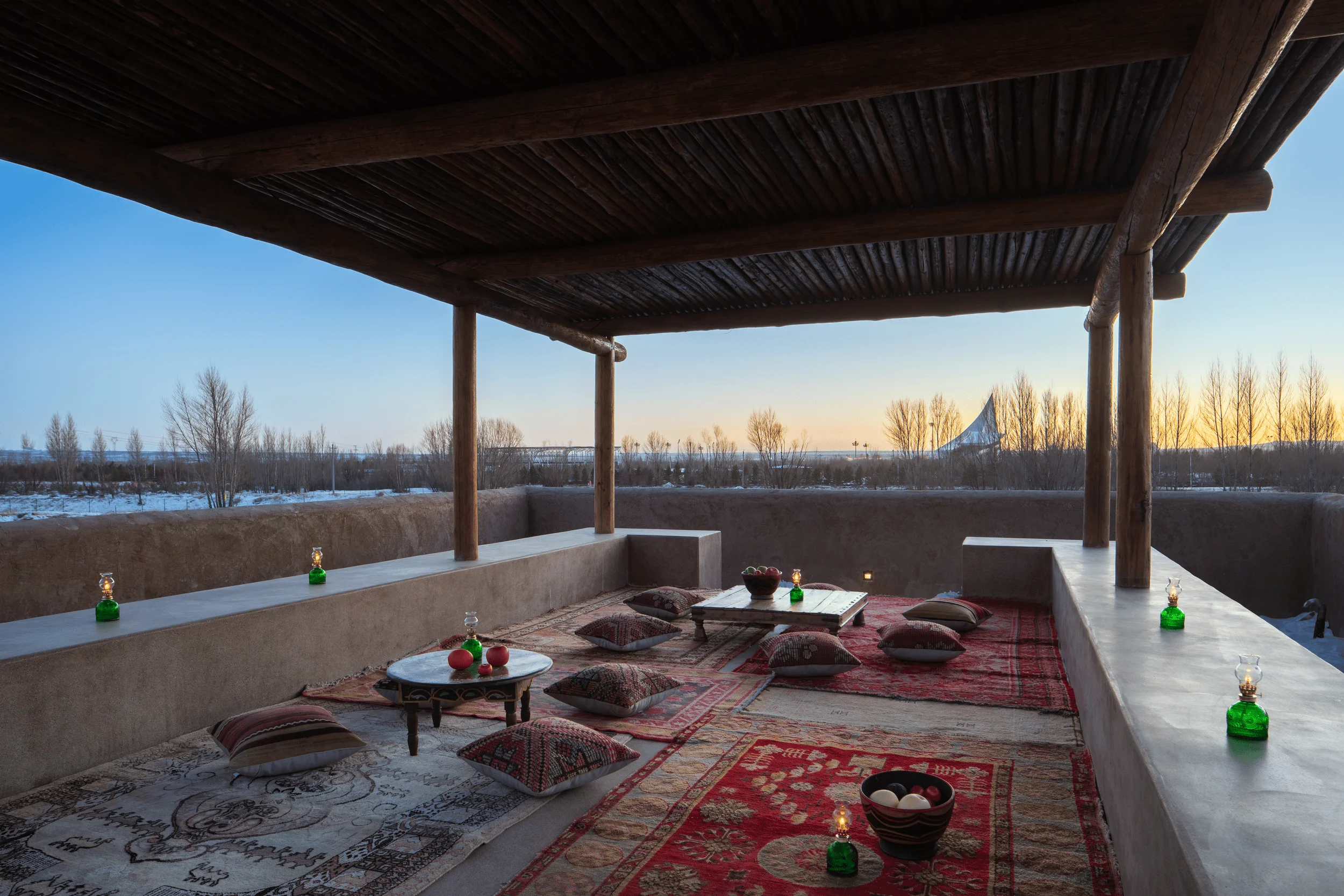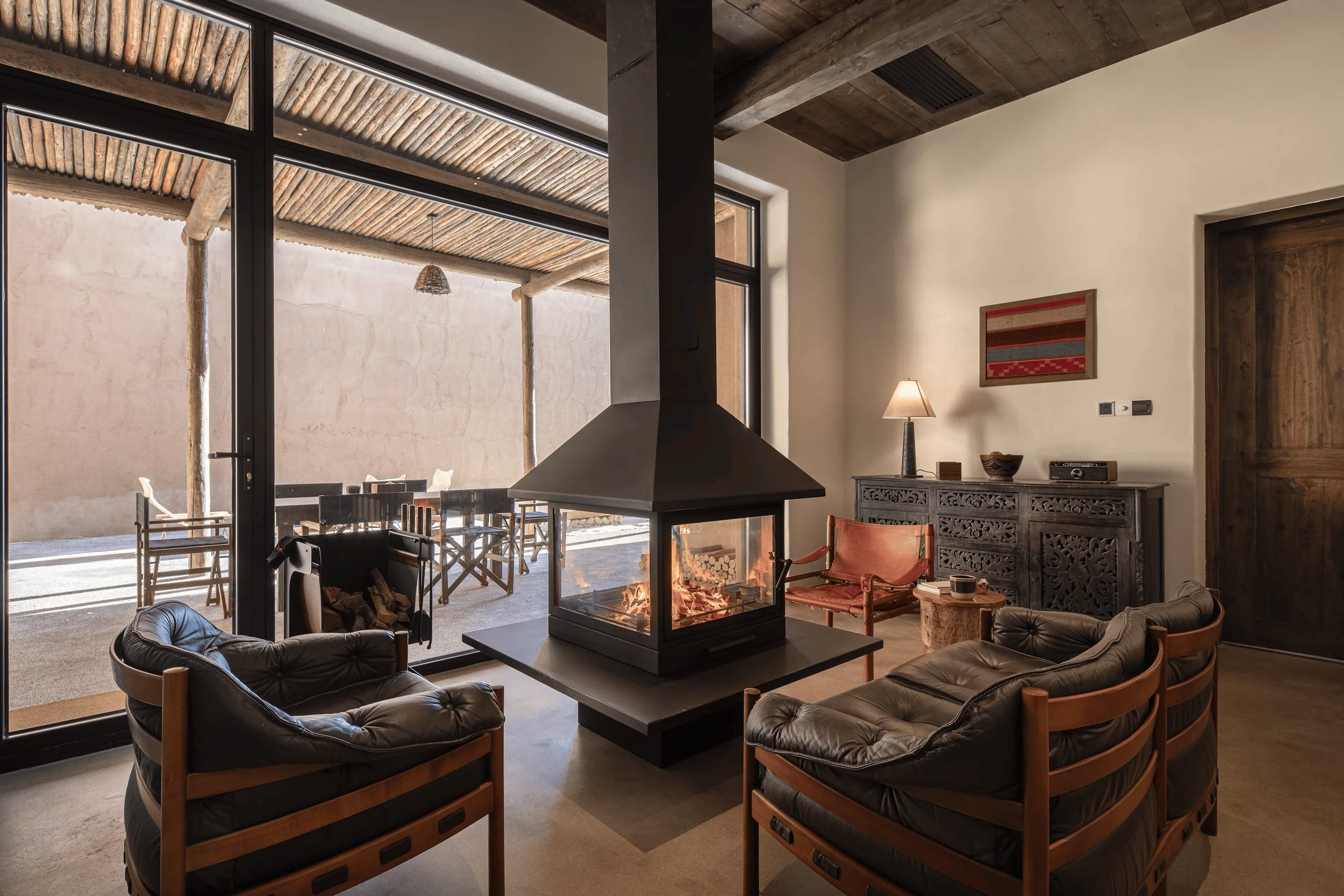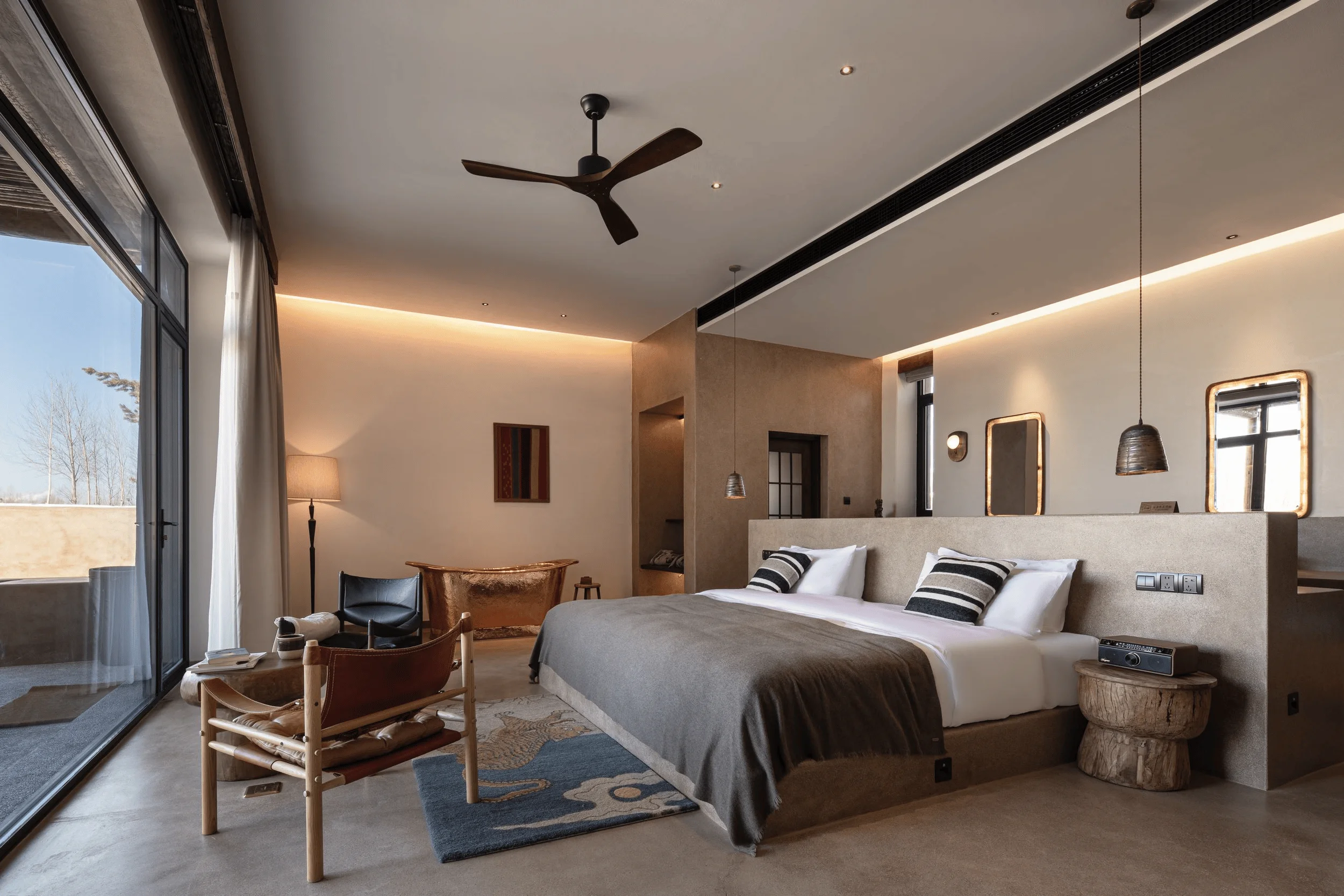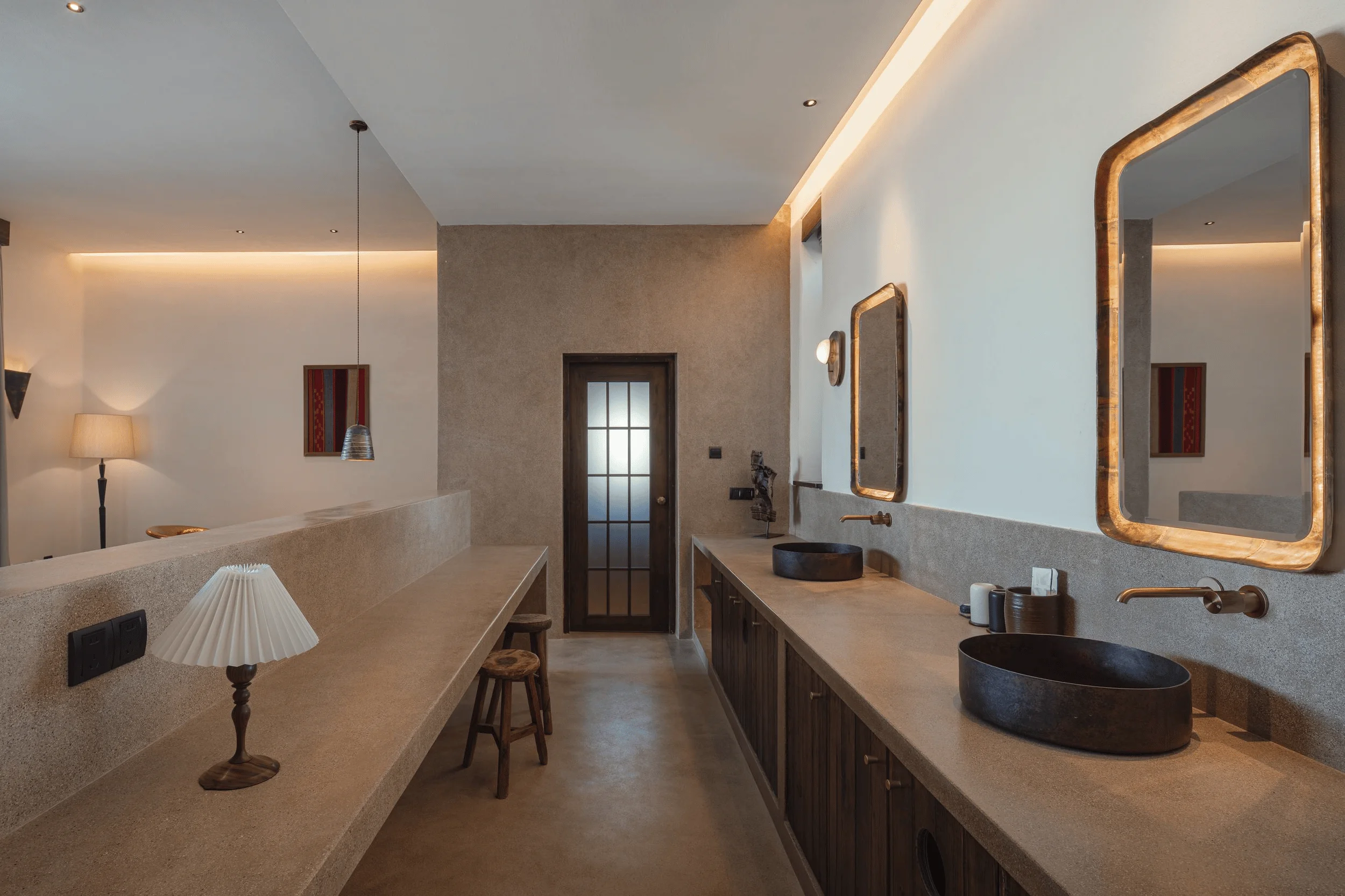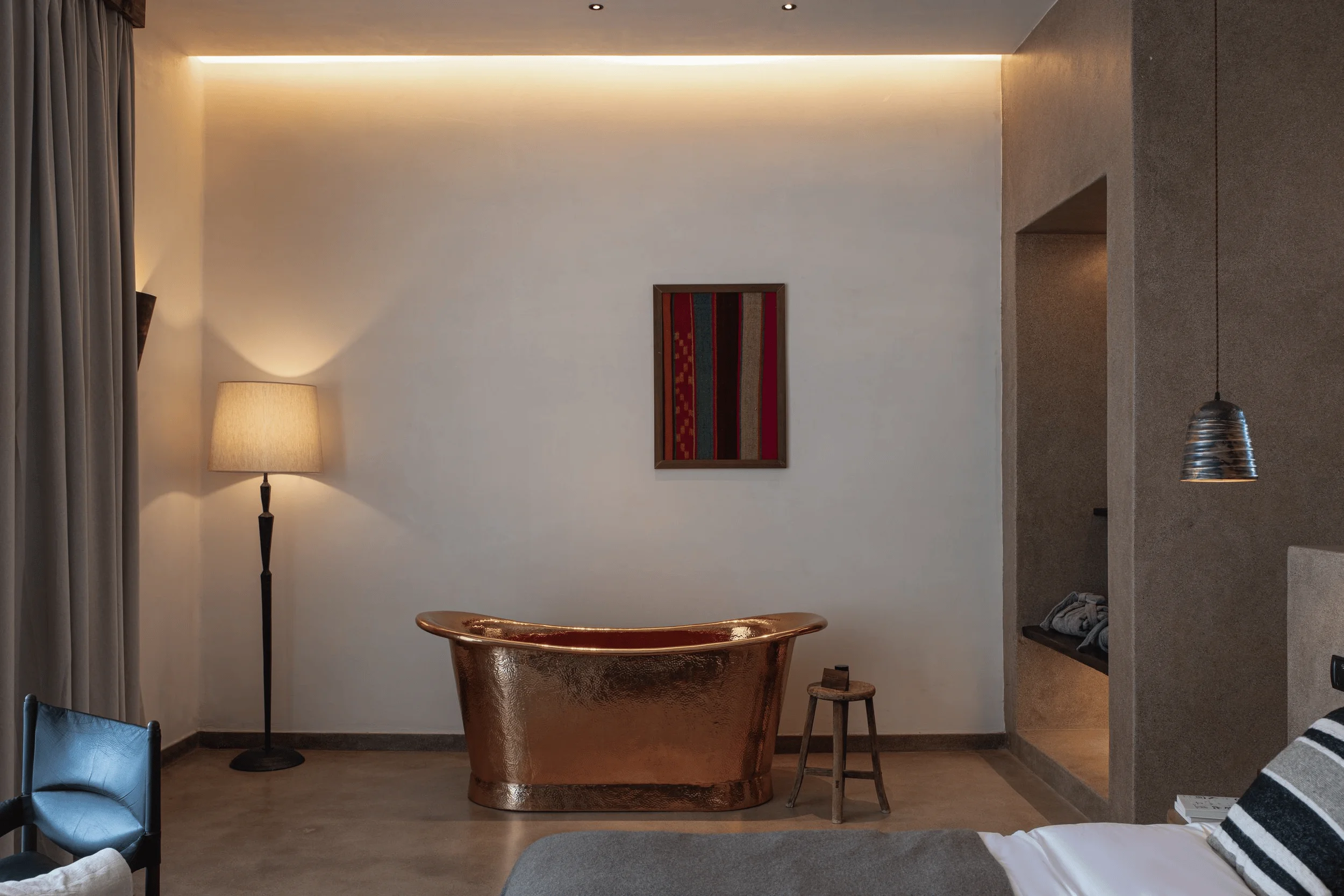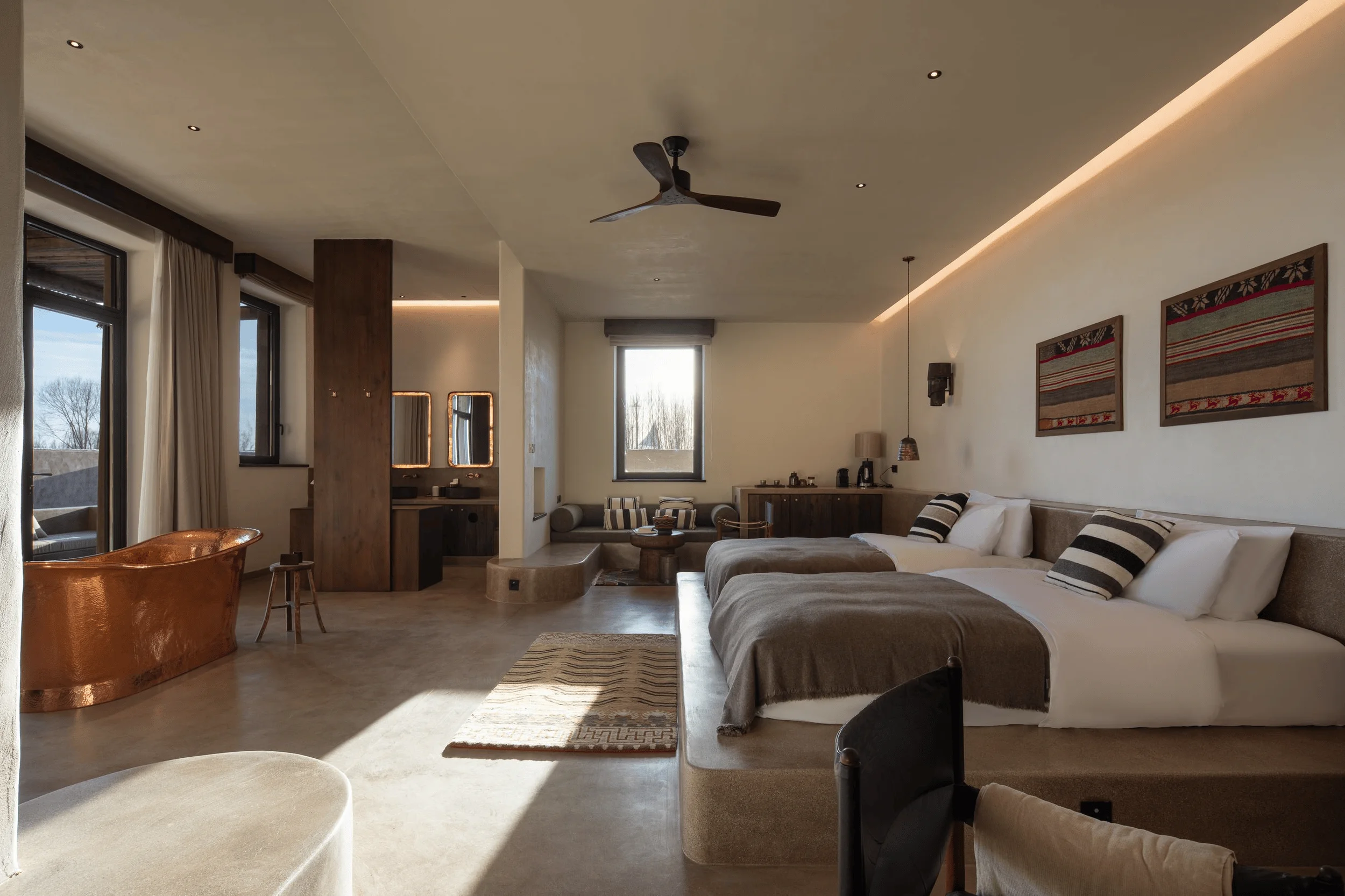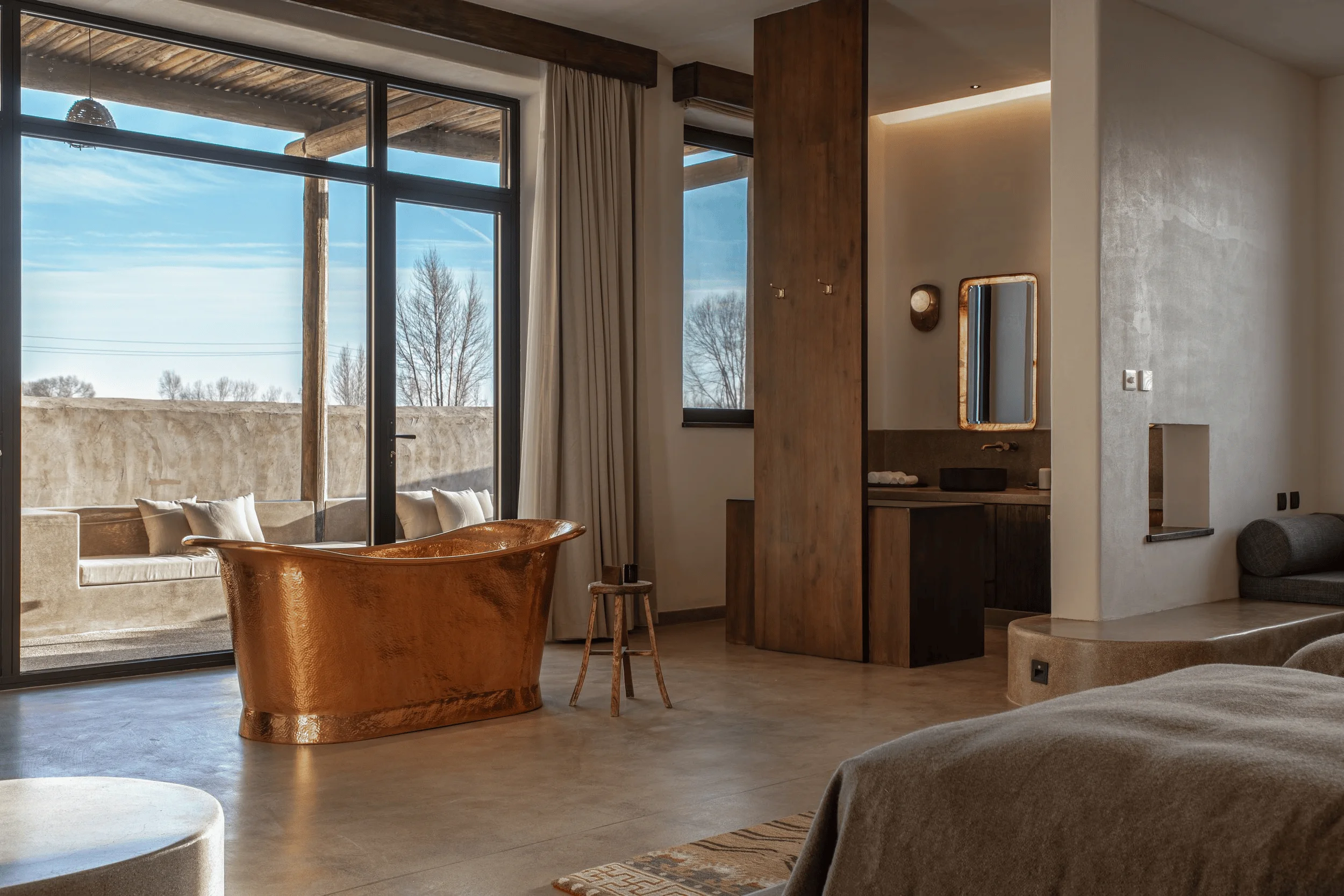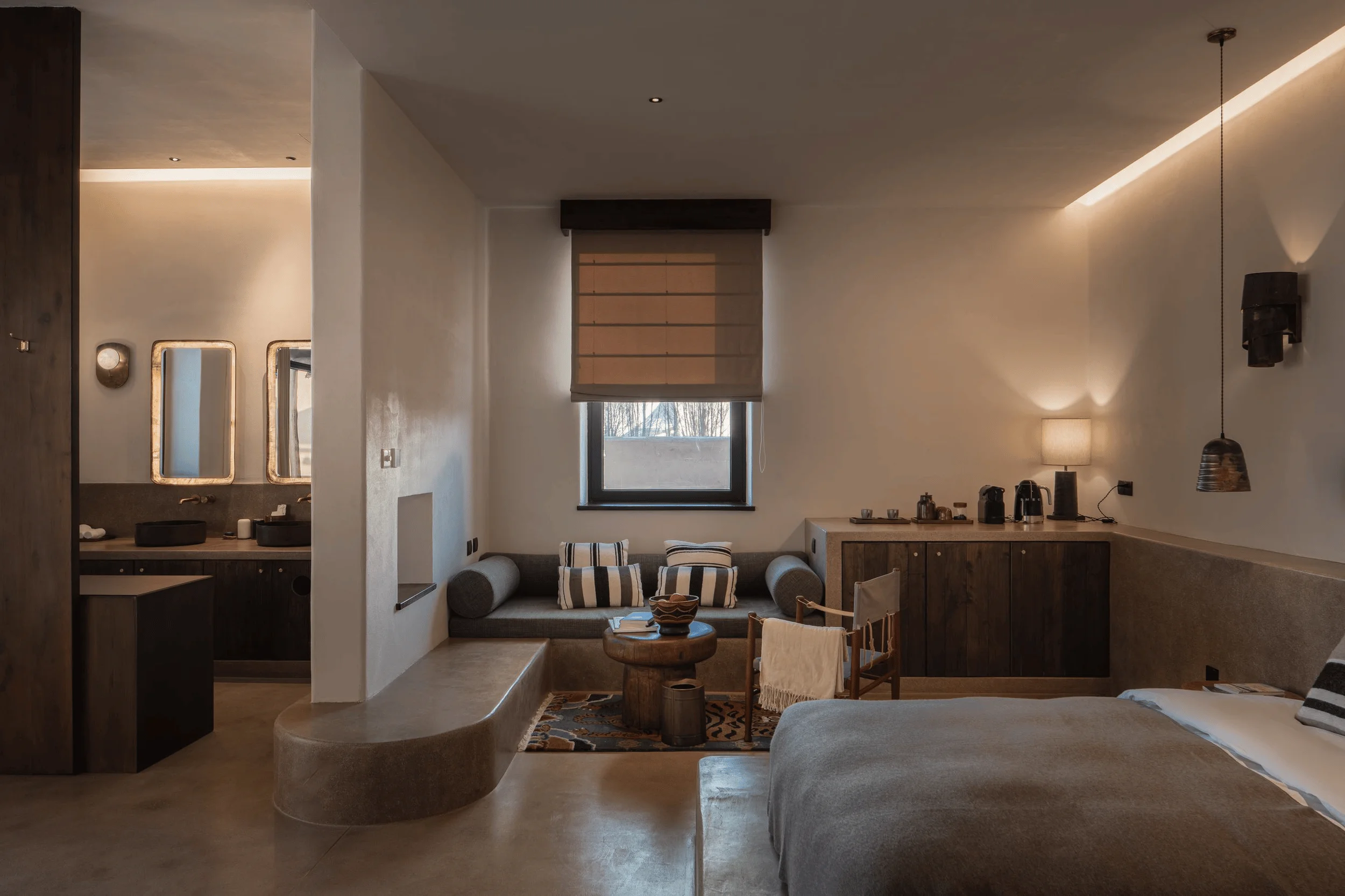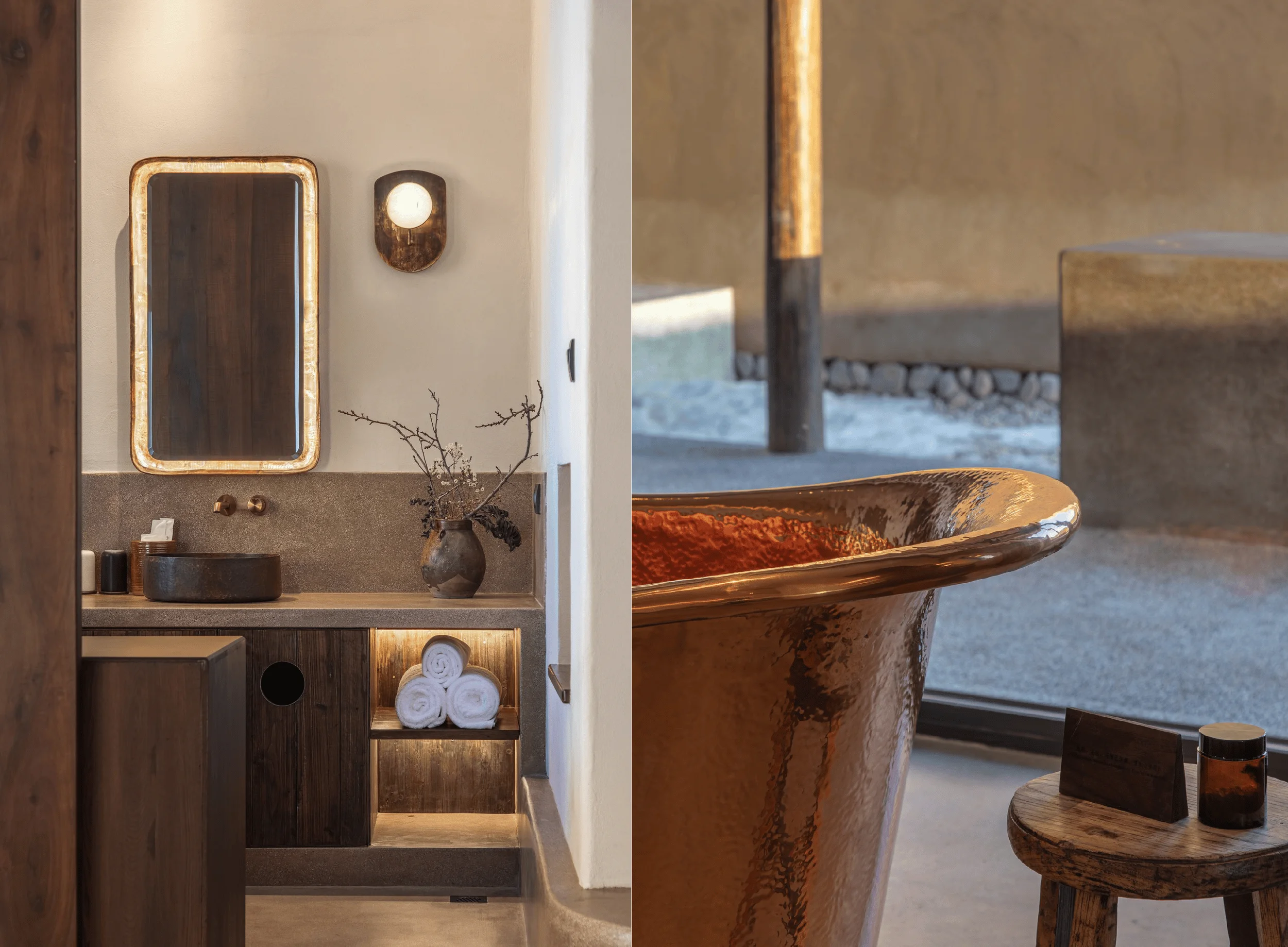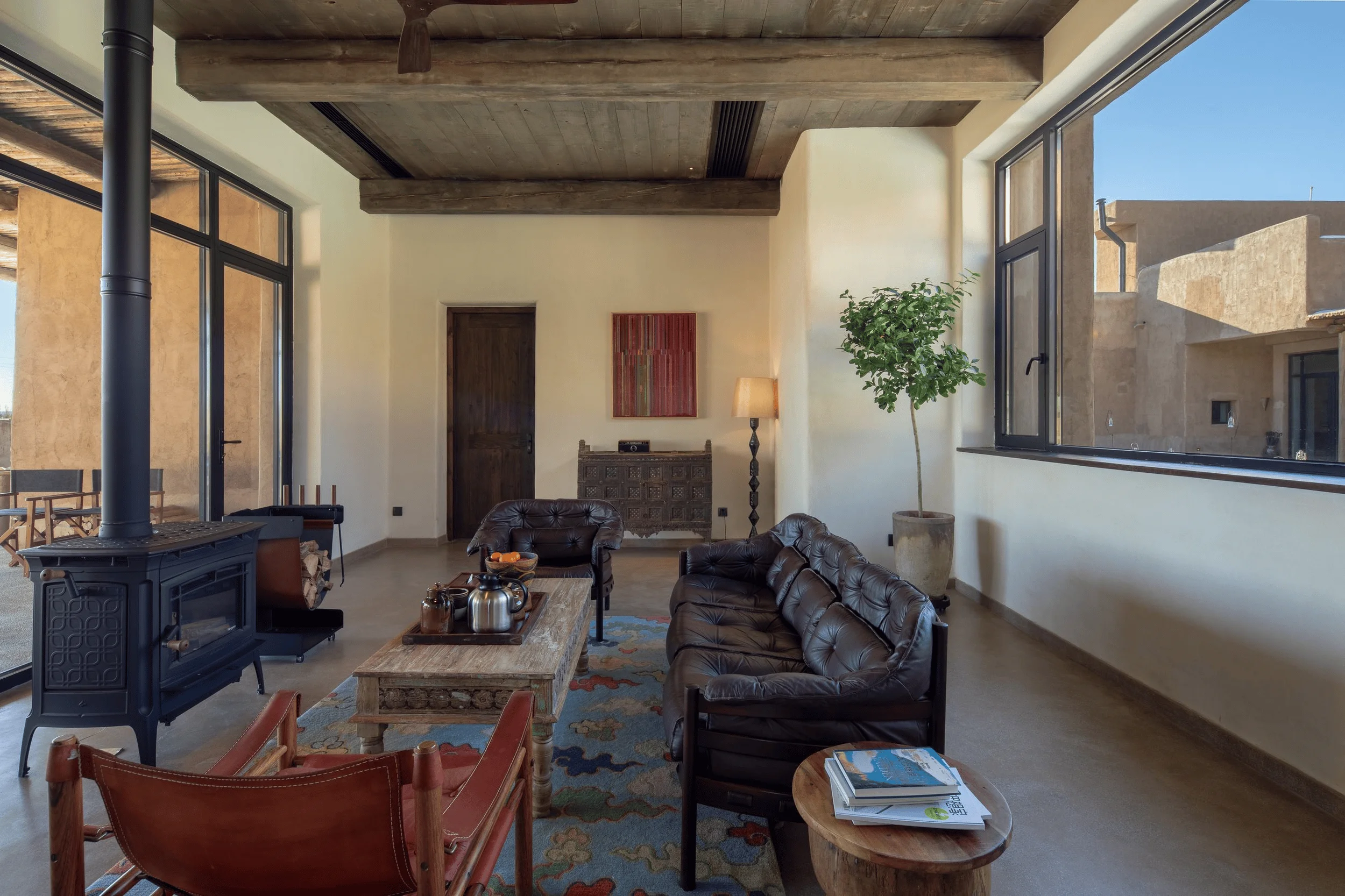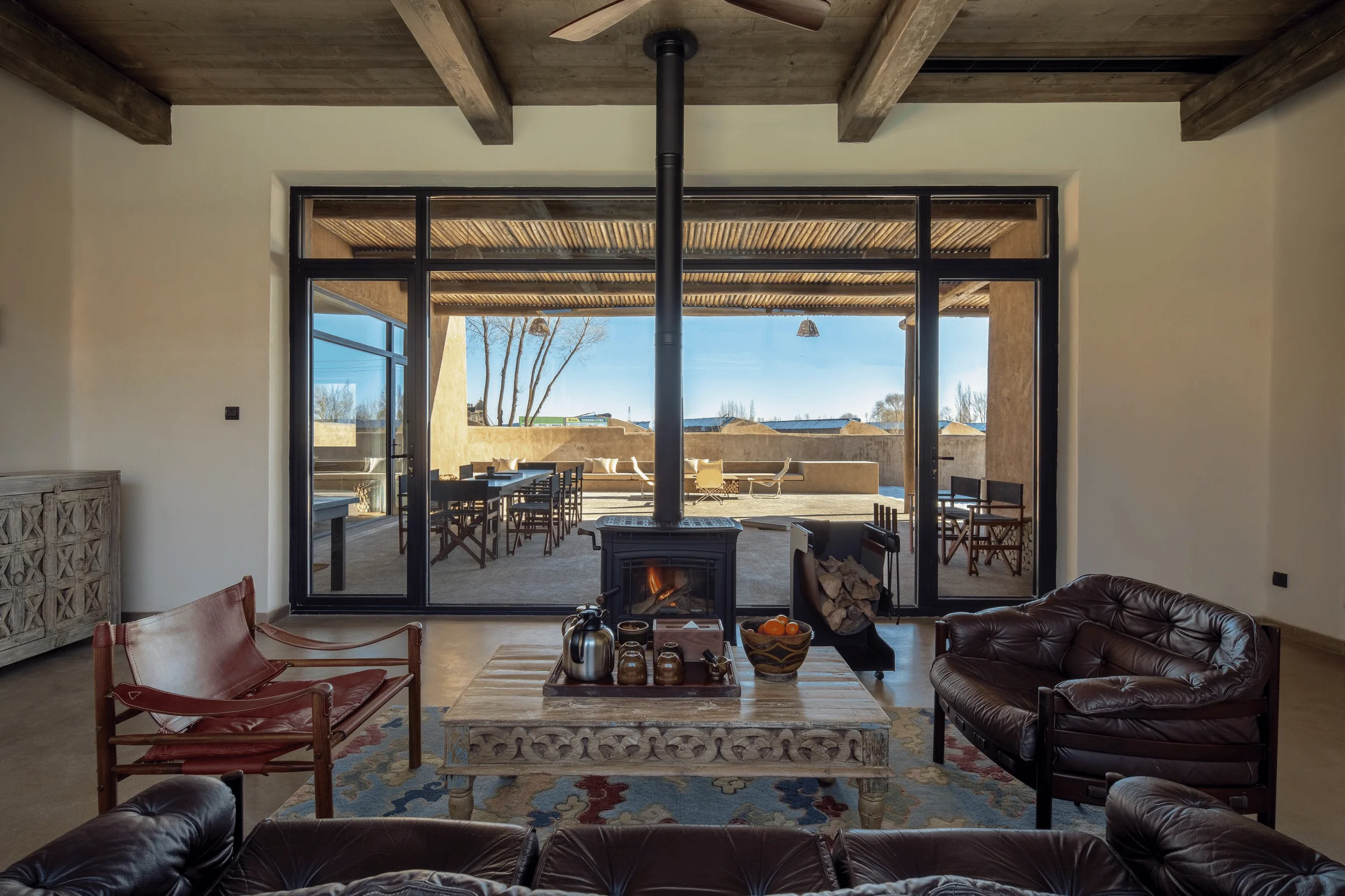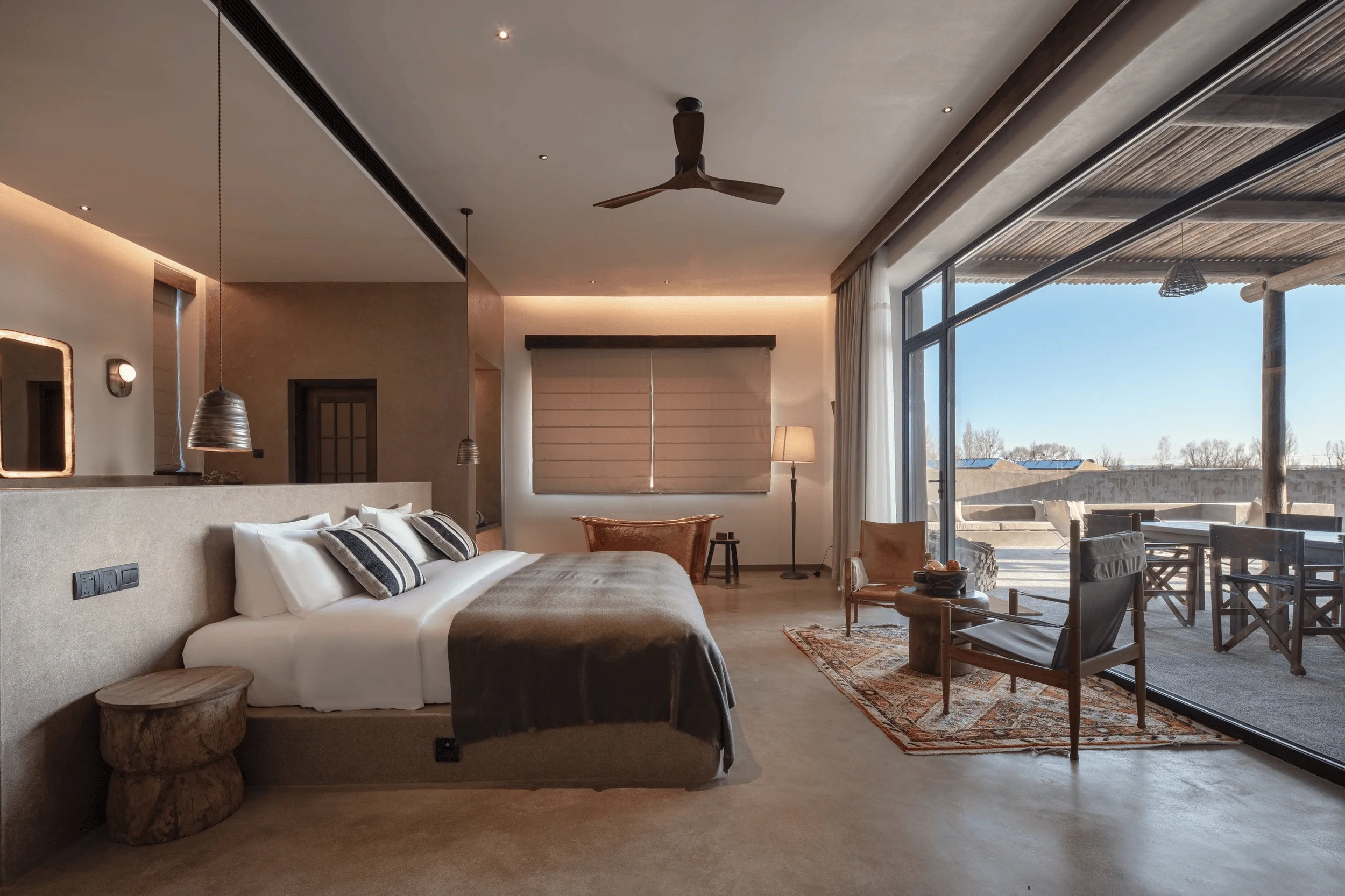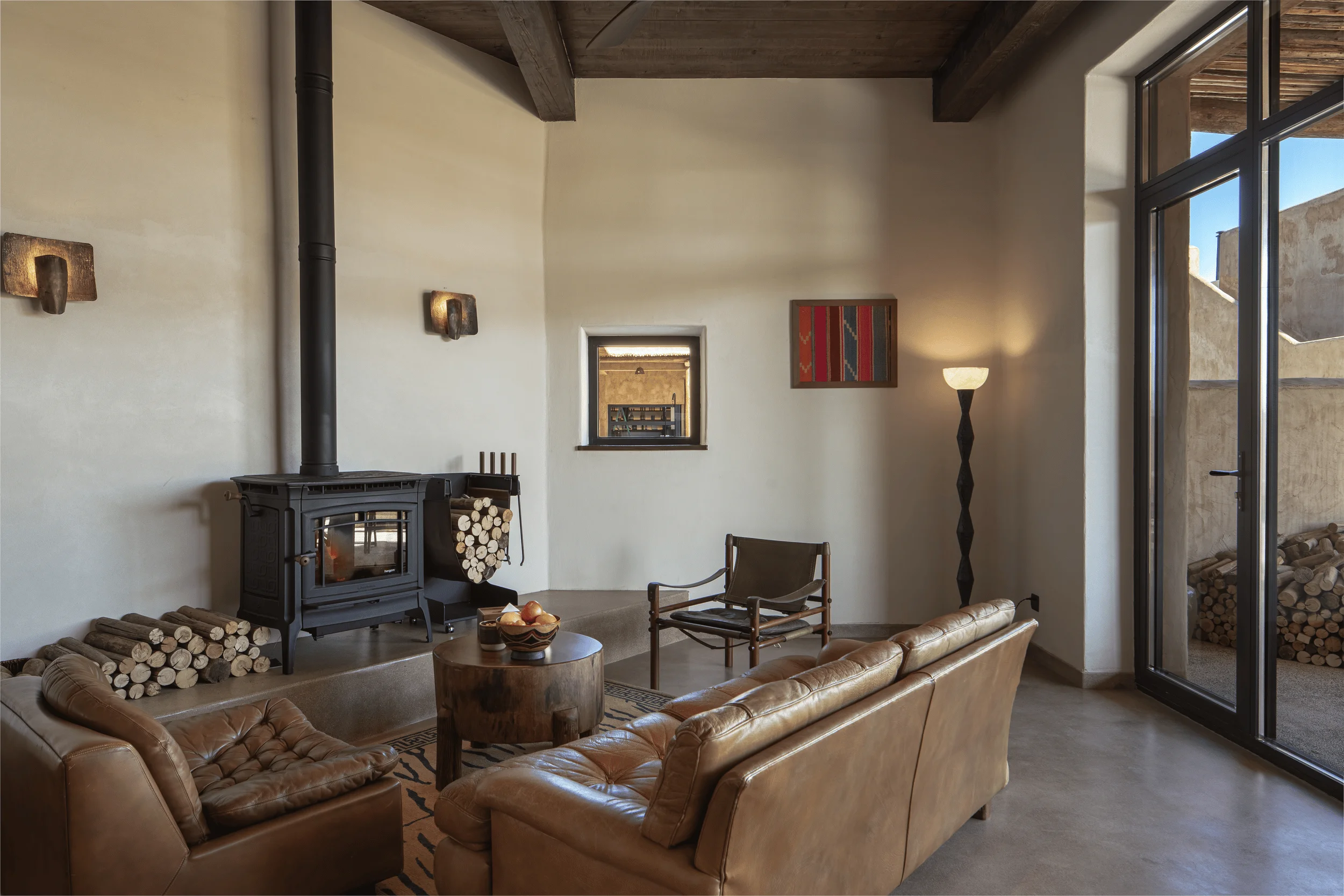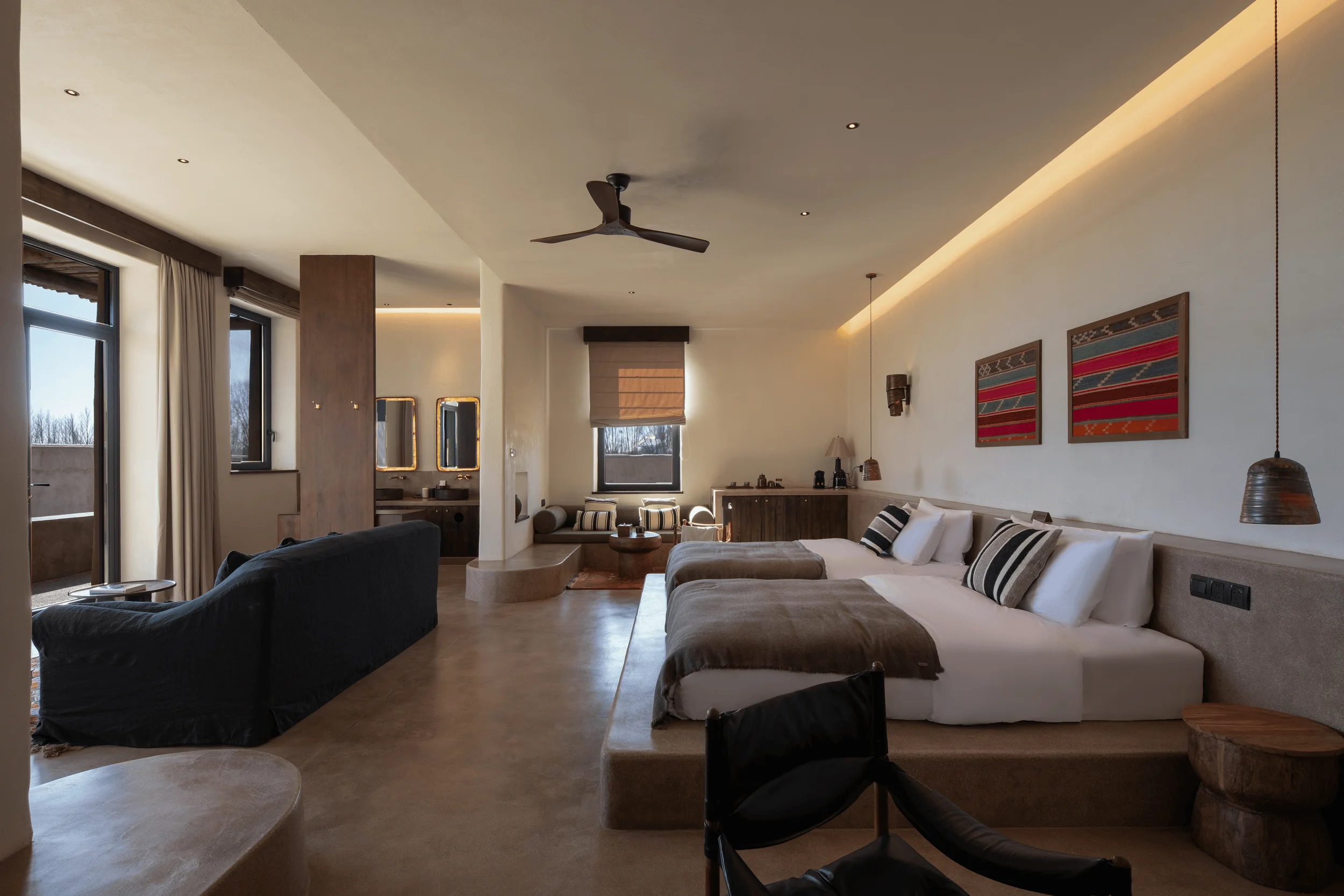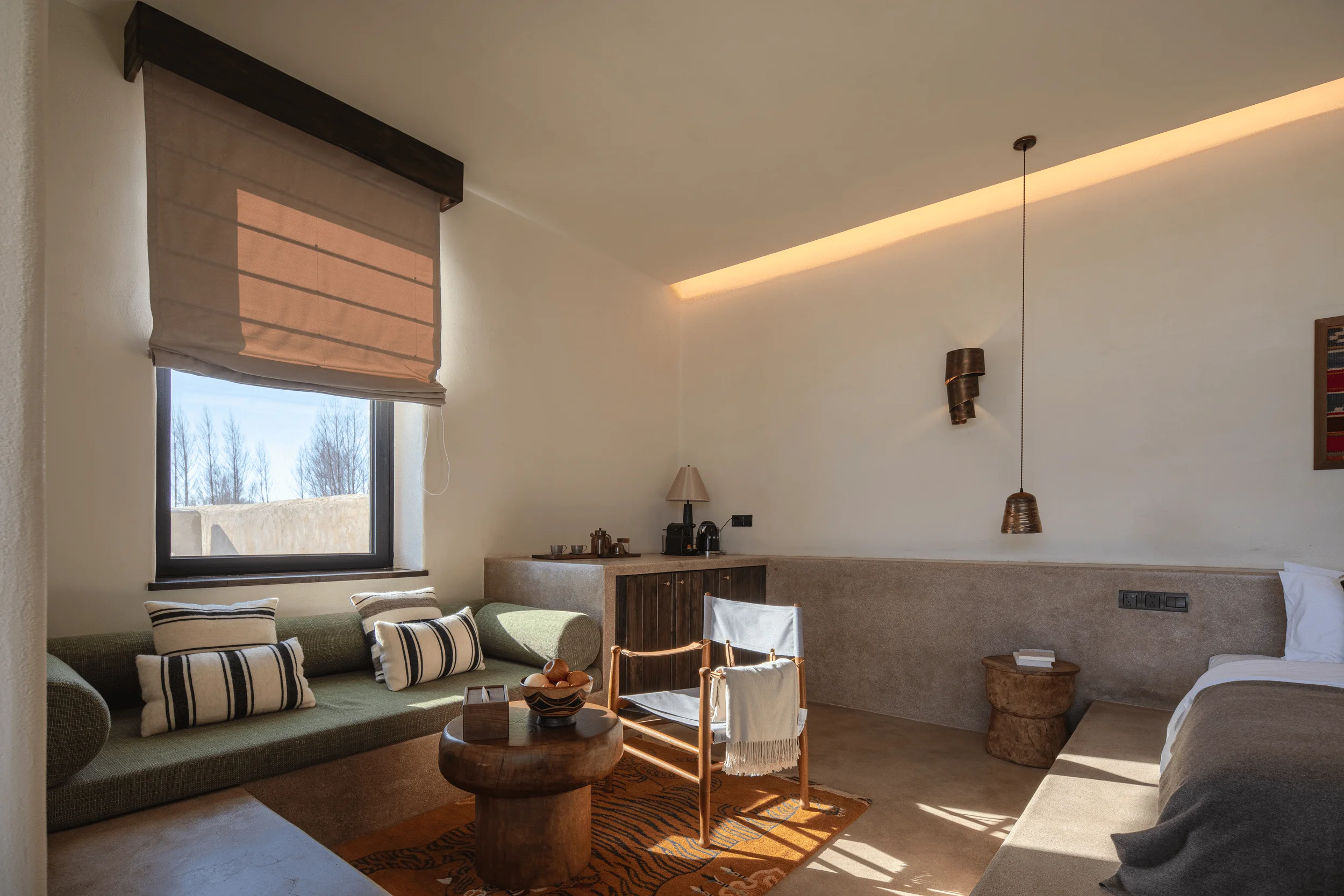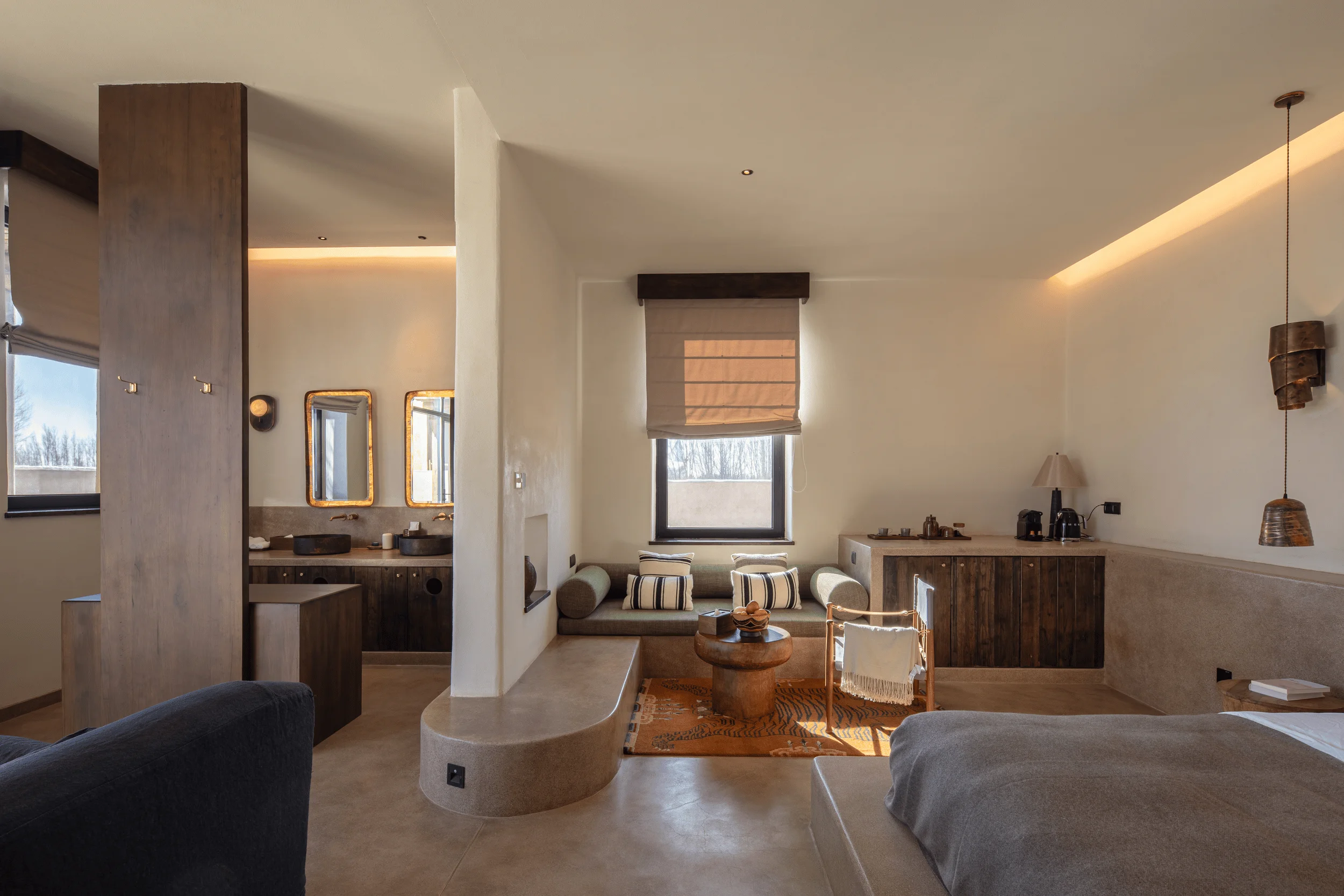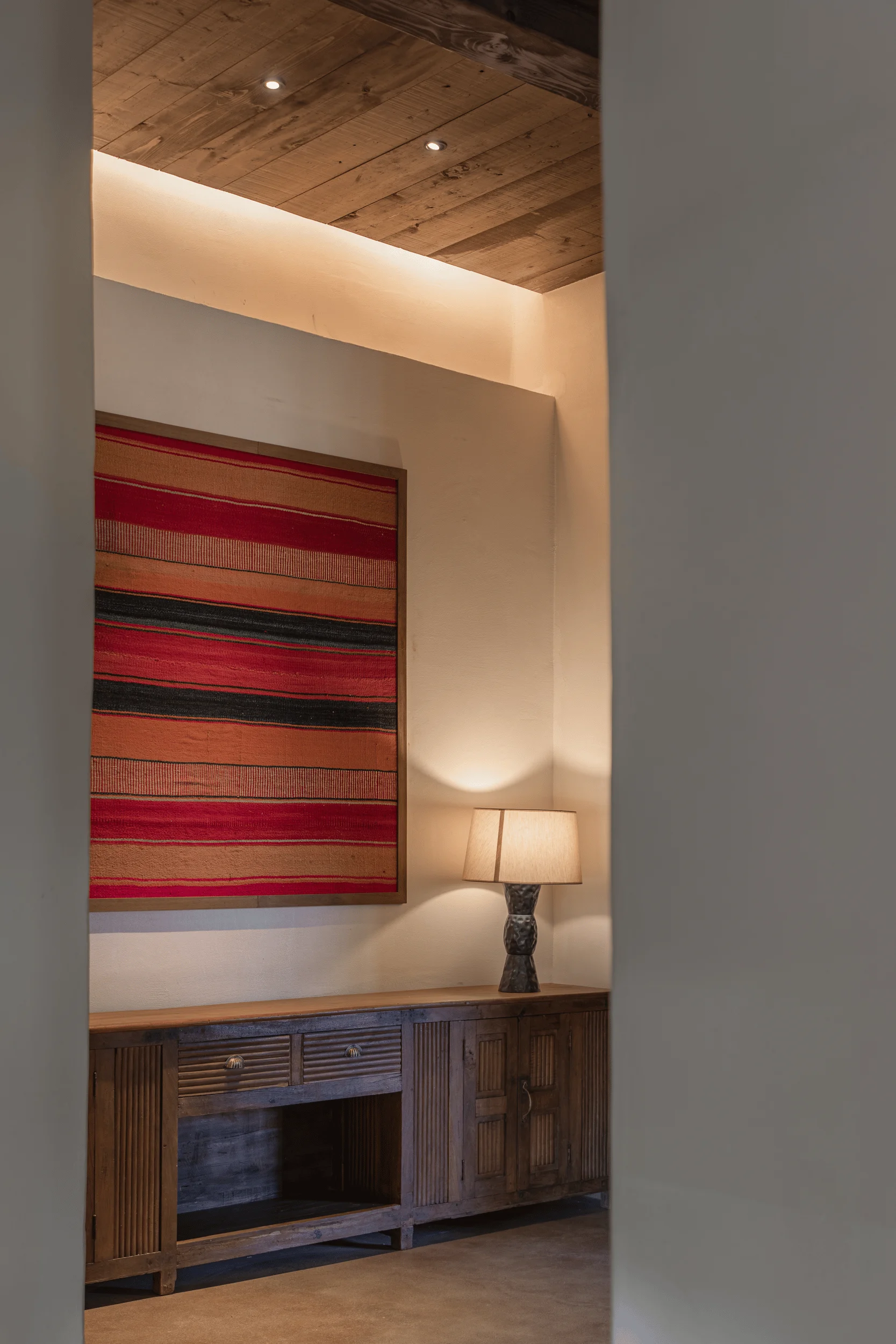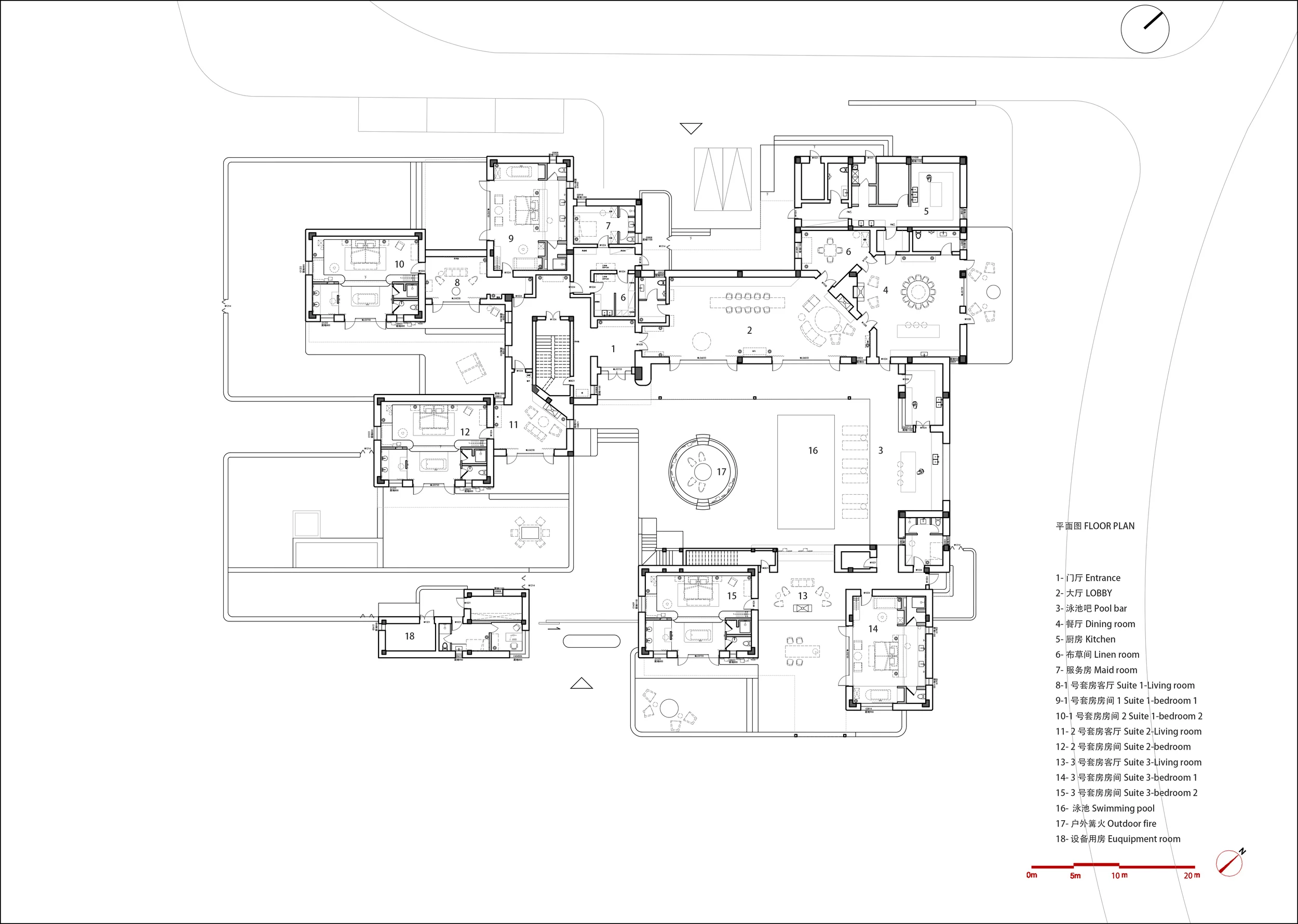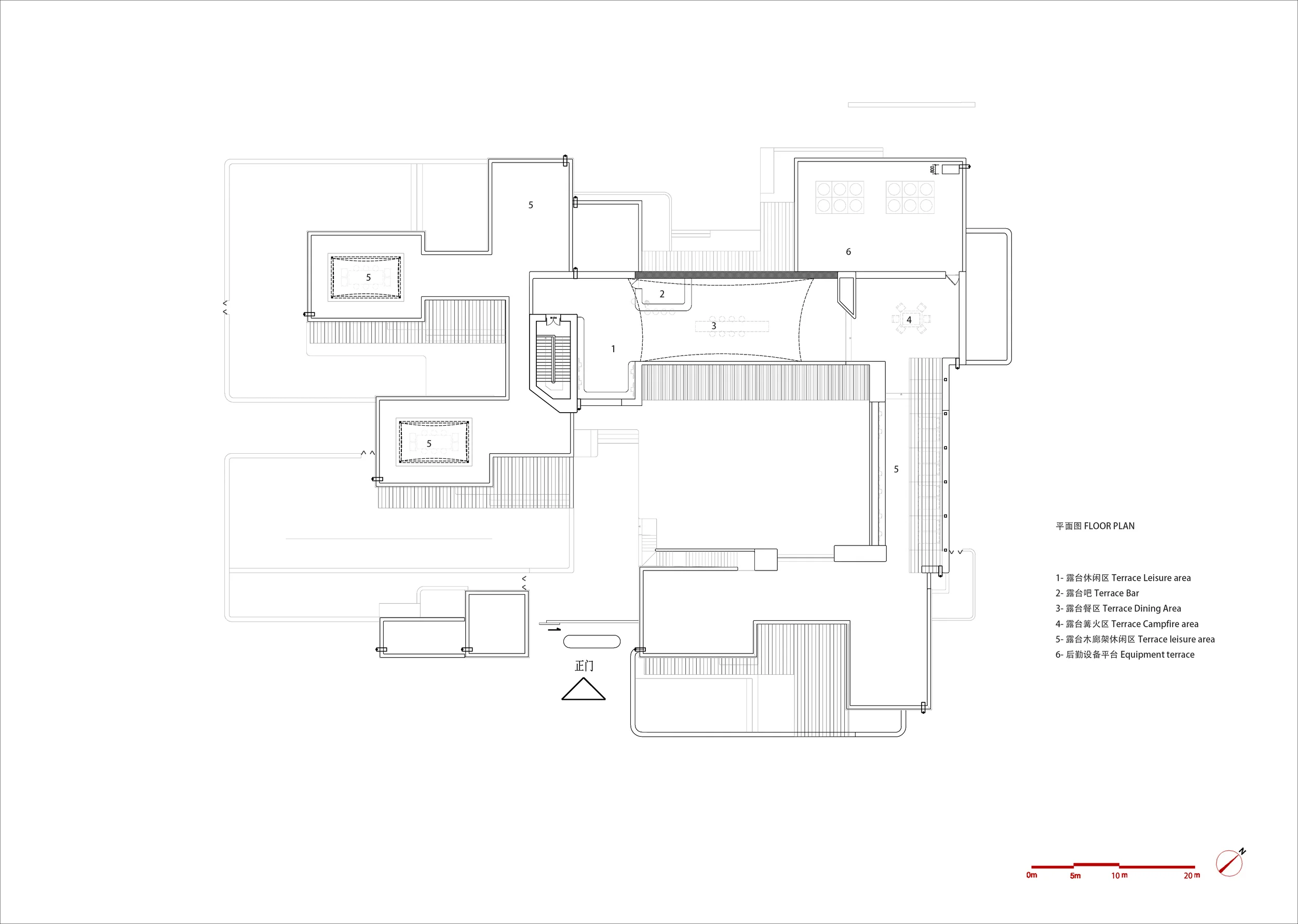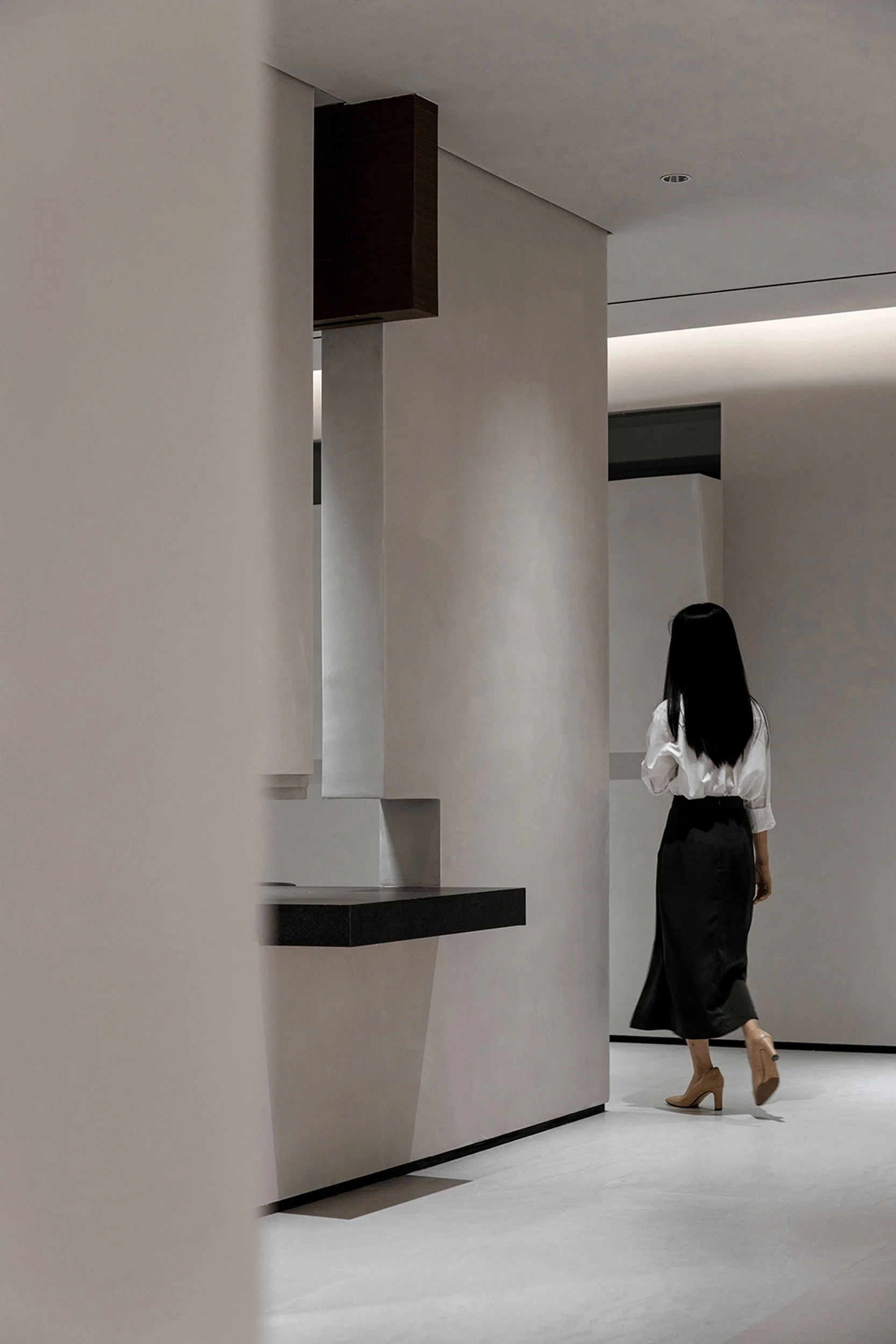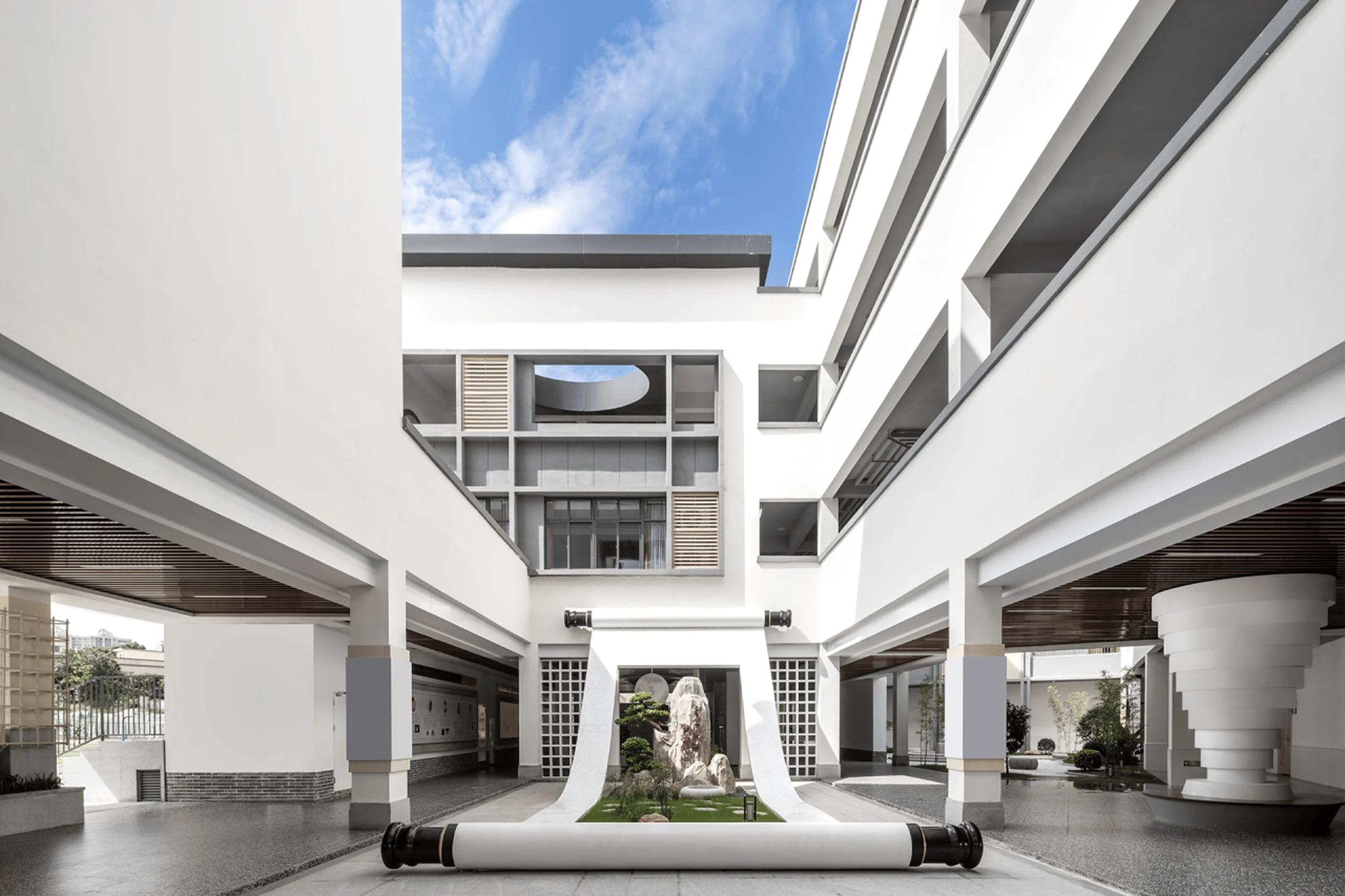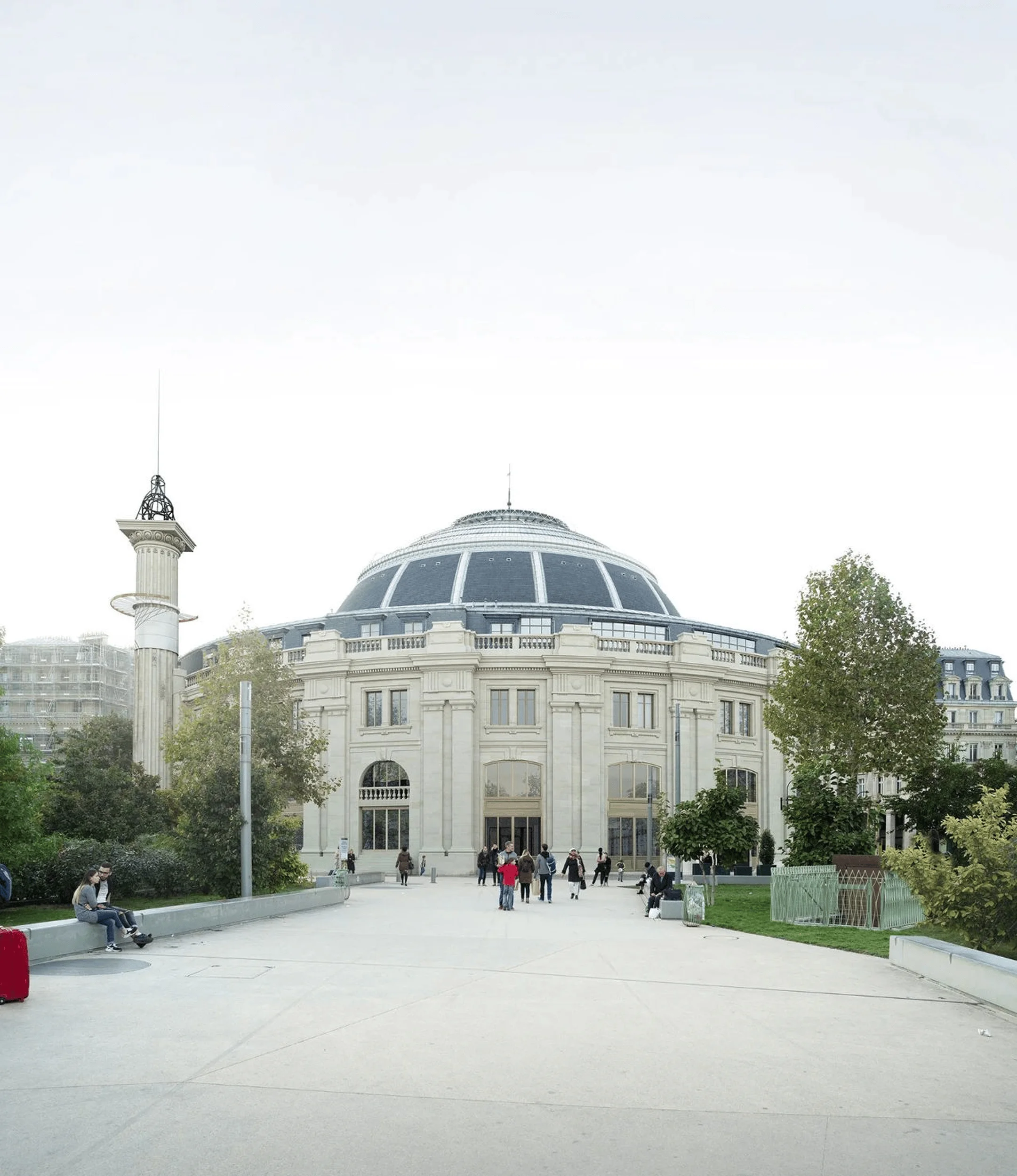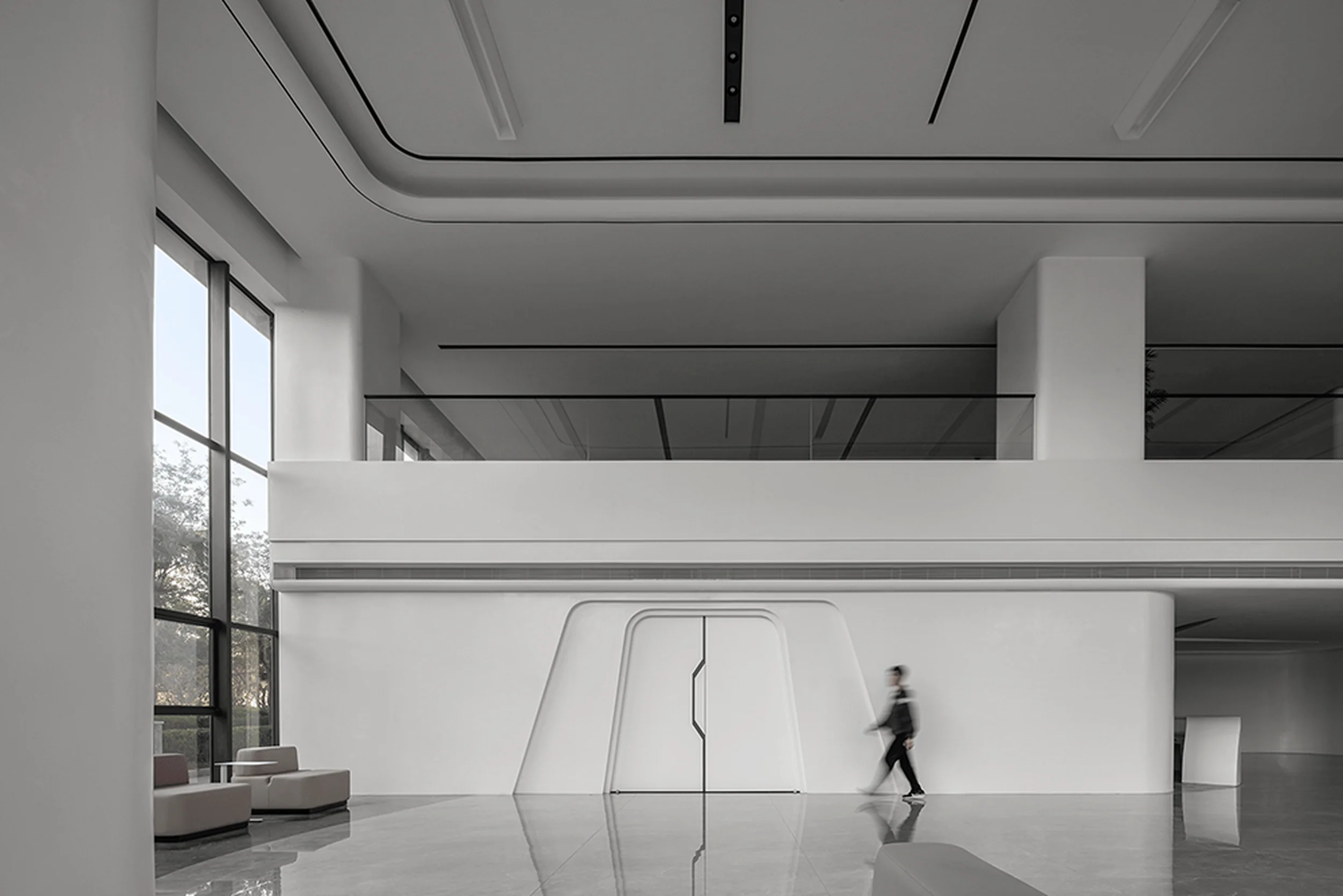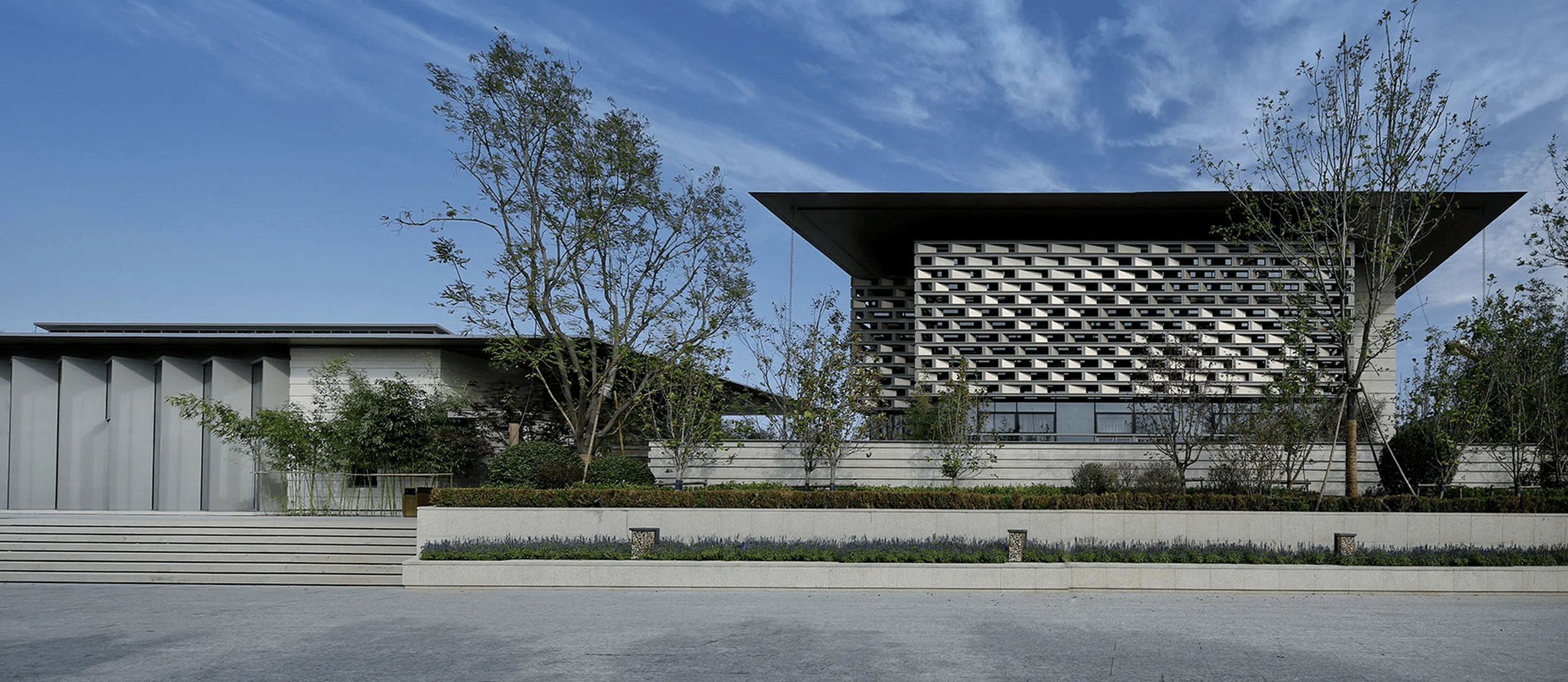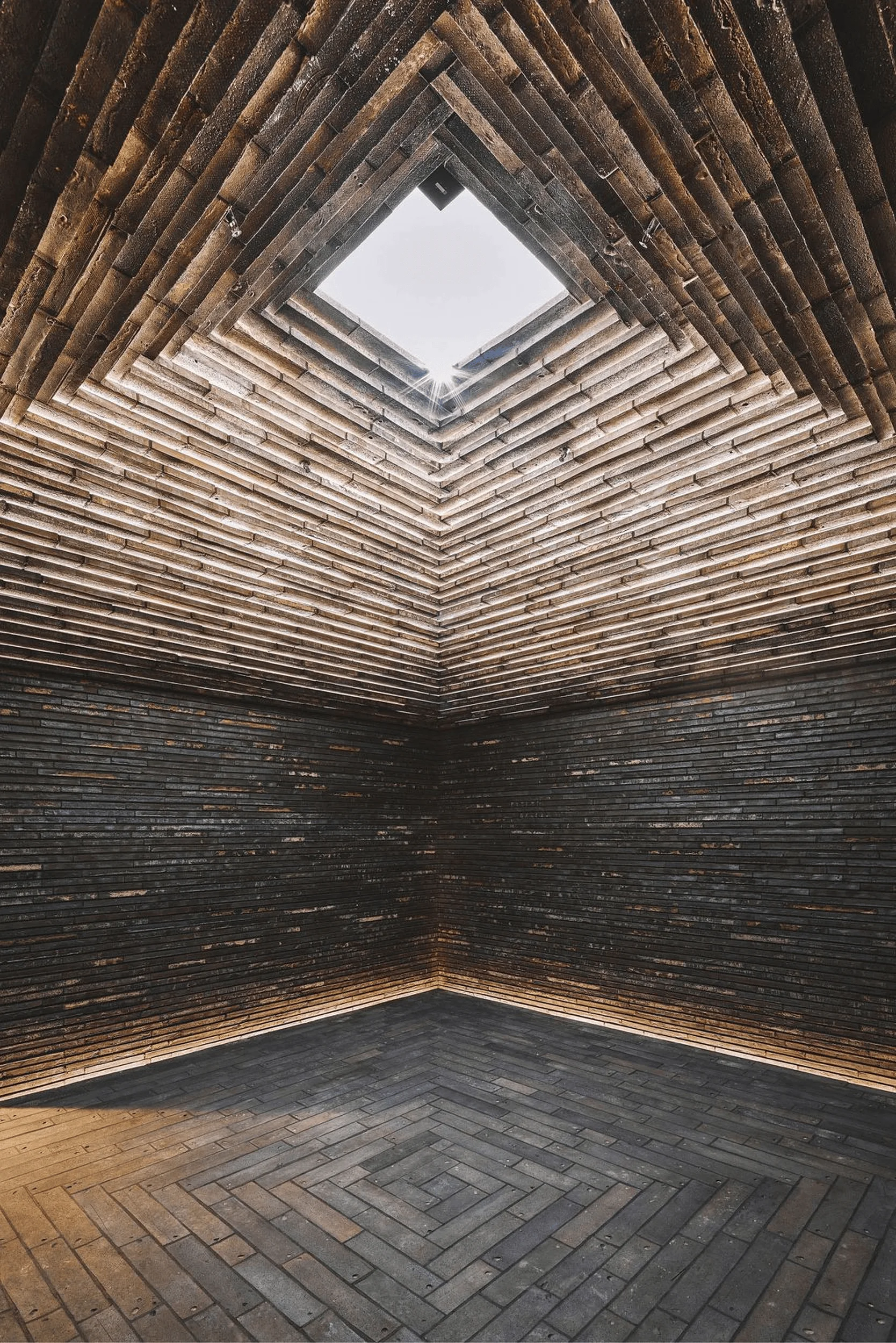Ordos Jiwai·Peng Hotel is a hospitality design that embodies the spirit of nomadic culture while showcasing sustainable building materials and techniques.
Contents
Project Background
The Ordos Jiwai·Peng Hotel, located in the Ejin Horo Banner of Ordos, Inner Mongolia, is part of the natrail Jiwai·China brand series. Jiwai, an outdoor resort brand dedicated to nomadic exploration in China, focuses on developing in-depth travel destinations in unique terrains such as the Yellow River, grasslands, deserts, rainforests, and islands. Their vacation travel products are guided by the principles of nomadism, marching, and exploration. Ordos, also known as the “Warm City,” is renowned for its cashmere production, accounting for 13% of the global supply, and for providing 1/6 of China’s coal and natural gas. The city boasts a rich history of trade and cultural exchange, with Ejin Horo Banner serving as a historical focal point where noble families established their residences and diverse cultures intertwined. Jiwai chose this location as a pivotal point in their journey from outdoor adventures to settled dwellings, blending the essence of nomadic life with the comforts of modern hospitality. The hotel’s design draws inspiration from three indigenous architectural forms of Ordos: Mongolian yurts, adobe houses, and cave dwellings, creating a unique architectural vocabulary that resonates with the local context. The rammed earth walls, reminiscent of traditional building techniques, create a harmonious connection with the surrounding landscape. The project is a collaborative effort between Xiaohui Design Studio and LEL DESIGN STUDIO, showcasing the region’s rich nomadic heritage. The hotel’s architectural and interior design seamlessly integrates natural and sustainable materials, reflecting the local environment, aesthetic traditions, textile culture, and global nomadic influences. It’s not just a dwelling but a cultural exploration, a celebration of life’s aesthetics, and a novel expression of the wild luxury resort experience and travel destination. The Ordos Jiwai·Peng Hotel design embodies the spirit of nomadic culture while showcasing sustainable building materials and techniques, creating a destination that is both unique and grounded in its context. The hotel’s design is a testament to the power of collaboration, blending the expertise of designers and the vision of the client to create a truly remarkable hospitality experience.
tag: nomadic-inspired architecture
Design Concept and Objectives
The Ordos Jiwai·Peng Hotel’s design is rooted in the nomadic heritage of the region, drawing inspiration from traditional Mongolian yurts, adobe houses, and cave dwellings. The architects aimed to create a space that embodies the essence of nomadic life while providing modern comforts and amenities. The use of natural and sustainable materials, such as rammed earth for the exterior walls and polished concrete for the interior finishes, reflects a commitment to environmental consciousness and a connection to the surrounding landscape. The hotel’s design promotes a sense of community and encourages interaction between guests through shared spaces like the central courtyard, outdoor pool, pool bar, and bonfire area. The architects prioritized functionality and operational efficiency in the spatial organization, creating a seamless flow between indoor and outdoor spaces. The interior design celebrates the nomadic lifestyle through the use of natural materials, handcrafted furniture, and curated artwork that reflects the region’s cultural heritage. The overall design concept aims to provide a unique and immersive experience for guests, allowing them to connect with the local culture and environment while enjoying the comforts of a modern hospitality setting. The Ordos Jiwai·Peng Hotel stands as a testament to the harmonious blend of vernacular architecture and contemporary design principles, creating a destination that is both authentic and innovative.
tag: sustainable hospitality design
Materials and Style
The Ordos Jiwai·Peng Hotel’s exterior features rammed earth walls, a traditional building technique that utilizes local soil and gravel aggregates. This approach not only creates a visually appealing texture that blends with the surrounding landscape but also promotes sustainability by using locally sourced materials. The architects opted for rounded corners and parapet coping details to soften the building’s overall appearance, creating a gentle and inviting aesthetic. The slightly inclined walls, reminiscent of traditional adobe houses, provide both structural integrity and thermal insulation, adapting to the cold climate of the region. While the project is situated in an area predominantly inhabited by Mongolians, the architectural design aims to evoke a broader sense of nomadic culture, embracing the shared characteristics of various nomadic communities worldwide. The interior design complements the exterior aesthetic with the use of polished concrete, creating a seamless transition between indoor and outdoor spaces. Leather, wool carpets, and cashmere blankets add warmth and texture to the interiors, reflecting the nomadic tradition of utilizing natural fibers for comfort and insulation. The hotel’s design showcases a harmonious blend of vernacular building techniques and contemporary design principles, creating a space that is both grounded in its context and aesthetically appealing.
tag: rammed earth construction
Indoor and Outdoor Spaces
The Ordos Jiwai·Peng Hotel’s design responds to the region’s windy climate by creating a central courtyard that encloses the main activity spaces. This courtyard provides a sheltered environment for guests to enjoy the outdoors while minimizing exposure to the elements. The outdoor pool, pool bar, and bonfire area offer a variety of recreational options, encouraging guests to relax and socialize. The architects prioritized functionality and user experience in the spatial organization, creating a seamless flow between indoor and outdoor areas. The hotel’s interior spaces are designed to be both comfortable and functional, with a focus on natural light and open layouts. The use of polished concrete throughout the interiors creates a sense of continuity and provides a durable and low-maintenance finish. The hotel’s guest rooms feature a minimalist aesthetic, with a focus on natural materials and handcrafted furniture. Open-plan bathrooms and dressing areas create a sense of spaciousness, while the use of copper bathtubs adds a touch of luxury. The Ordos Jiwai·Peng Hotel’s design demonstrates a thoughtful approach to integrating indoor and outdoor spaces, creating a harmonious environment that is both responsive to the local climate and conducive to relaxation and enjoyment.
tag: nomadic-inspired interiors
Decorative Aesthetics
The interior design of the Ordos Jiwai·Peng Hotel is a collaborative effort between the Jiwai brand operators and the design team. The client, with their extensive experience in hospitality, has curated a collection of woven tapestries and antique furniture from around the world, representing the rich diversity of nomadic cultures. These carefully selected pieces form a unique and distinctive interior decor, adding character and authenticity to the hotel’s ambiance. The design team seamlessly integrated these elements into the overall design scheme, creating a cohesive and visually appealing environment. The hotel’s interiors showcase a blend of contemporary and traditional aesthetics, with a focus on natural materials and handcrafted details. The use of copper and wool throughout the hotel’s decor adds a touch of warmth and sophistication, reflecting the nomadic heritage of the region. The Ordos Jiwai·Peng Hotel’s design is a testament to the power of collaboration, where the expertise of designers and the vision of the client come together to create a truly remarkable hospitality experience. The hotel’s interiors are not only aesthetically pleasing but also tell a story, reflecting the rich cultural heritage of nomadic communities and providing guests with a unique and immersive experience.
tag: curated nomadic furniture
Guest Room Areas
The Ordos Jiwai·Peng Hotel offers three sets of guest rooms, with two sets featuring a layout of one living room and two bedrooms, and one set consisting of one living room and one bedroom, for a total of five rooms. The design team aimed to create a departure from conventional hotel and guesthouse layouts, opting for a design that aligns with the concept of a luxurious residence fit for the esteemed guests of Ordos. The interior design of the guest rooms maintains a harmonious connection with the exterior through the use of polished concrete, echoing the rammed earth walls. Leather, wool carpets, and cashmere blankets add warmth and texture, reflecting the nomadic tradition of utilizing natural materials. Open-plan bathrooms and dressing areas create a sense of spaciousness, while the overall room layout embodies the robust and generous character of nomadic communities. The guest rooms offer a comfortable and inviting environment for guests to relax and unwind, while also reflecting the unique cultural heritage of the region. The design team’s attention to detail and commitment to creating a unique hospitality experience are evident in every aspect of the guest room design. The Ordos Jiwai·Peng Hotel’s guest rooms provide a sanctuary for travelers, offering a blend of comfort, functionality, and cultural immersion.
tag: open-plan bathroom design
Project Information:
Project Type: Architectural/Interior Design
Project Location: Mongolia
Built Area: 1500 square meters
Completion Time: October 2023
Architect: XIAOHUI DESIGN STUDIO+LEL DESIGN STUDIO
Photographer: Tang Xuguo


